Feb 2018 1st Edition
Feb 2018 1st Edition Estelle Greeff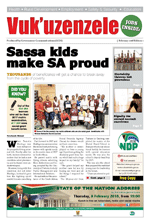
Translations
Sassa kids make SA proud
Sassa kids make SA proud Estelle GreeffThousands of beneficiaries will get a chance to break away from the cycle of poverty.
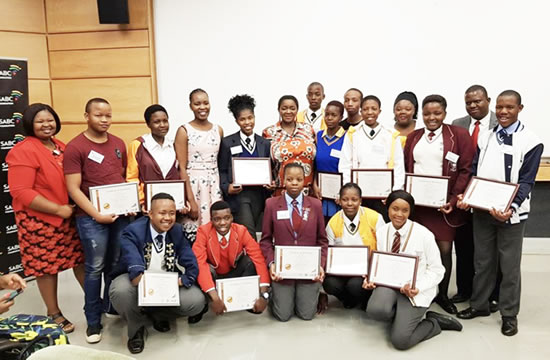 When Tumelo Mashigo was born he had little prospect of living a normal life. Shortly after his birth, doctors informed his mother that he had a rare condition called phocomelia and his hands were underdeveloped.
When Tumelo Mashigo was born he had little prospect of living a normal life. Shortly after his birth, doctors informed his mother that he had a rare condition called phocomelia and his hands were underdeveloped.
However, living with this condition did not deter Mashigo. Instead it gave him the fighting spirit needed to make something of his life.
Fast forward to 2017 and Mashigo was announced as the second best performing learner with special needs in the matric class of 2017 in South Africa.
He passed matric with flying colours, achieving three distinctions and being accepted by the University of Pretoria to study Public Management and International Relations.
He said without the assistance of the South Africa Social Security Agency (Sassa), his dreams would not have come true.
“My mother is unemployed so from a young age I have been getting the disability grant from Sassa, which had such a huge impact on my family,” he said.
“The grant helped my mother care for me by buying me food and all the things I required for school.”
The 18-year-old from Tsakane in Gauteng completed his matric at the Muriel Brand School in Brakpan which is an educational facility for learners with special education needs. He was also the school’s deputy head boy for 2017.
This was also the school that prepared the confident young man for leadership in the future.
“I have an interest in politics and helping people. I see myself as a leader and I hope that one day I will be the president of South Africa,” said Mashigo.
Minister of Social Development Bathabile Dlamini said she was very proud that four of the country’s top achievers were social grant beneficiaries.
“We are also celebrating the achievements of those with special needs who succeeded against all odds,” said Minister Dlamini.
She said data from 2017 shows that 79.9 percent of the learners who wrote the matric final paper were grant beneficiaries and over 5 016 of them received bachelor passes while 5 997 achieved diploma passes and 2 863 received higher certificate passes.
These learners achieved 500 distinctions in subjects that include accounting, business studies, mathematics and physical science.
Dlamini added that over 400 000 pupils who wrote the final matric paper in 2017 were social grant beneficiaries. More than 200 000 passed which means that 59 percent of learners who passed matric were social grant beneficiaries.
She also announced that 14 000 social grant beneficiaries have been awarded bursaries from the National Student Financial Aid Scheme to further their education at universities and TVET colleges.
“Their achievements will inspire their peers and any other social grant beneficiaries,” said Minister Dlamini.
 Did you know?
Did you know?
Out of the 534 484 learners who sat for their 2017 matric examination, 417 239 were social grant beneficiaries.
The State of the Nation Address (SoNA)
The State of the Nation Address (SoNA) Estelle GreeffSoNA feature
At the Opening of Parliament every February, the President of South Africa delivers the State of the Nation Address (SoNA), which outlines the country’s performance for the past year and plans for the year ahead.
Before the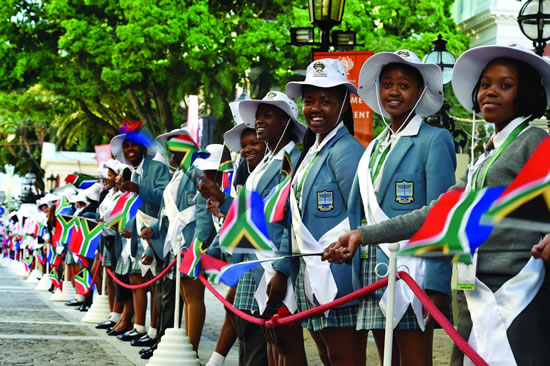 President makes his way into the National Assembly Chamber some ceremonial activities and cultural performances usually take place along the route and outside of Parliament. In keeping with customary proceedings, Cultural groups perform along the President’s route from the old Slave Lodge to the National Assembly.
President makes his way into the National Assembly Chamber some ceremonial activities and cultural performances usually take place along the route and outside of Parliament. In keeping with customary proceedings, Cultural groups perform along the President’s route from the old Slave Lodge to the National Assembly.
Here is a breakdown of the significance of some of those activities:
Presidential procession to the National Assembly Chamber
The ceremony, starts just outside the entrance to the Parliamentary precinct, is a combination of public participation and a formal state ceremony.
The public participates in the procession as part of making Parliament more accessible to the people and to facilitate public involvement in law-making and other parliamentary processes. This concept of public participation was introduced by the late President Nelson Mandela.
Members of the public, including a Junior Guard of Honour from the entrance of the parliamentary precinct to the end of the National Council of Provinces building, a Civil Guard of Honour and nine Eminent Persons, line the red carpet until the end of the Old Assembly Wing.
From there the procession becomes part of a formal, state ceremony.
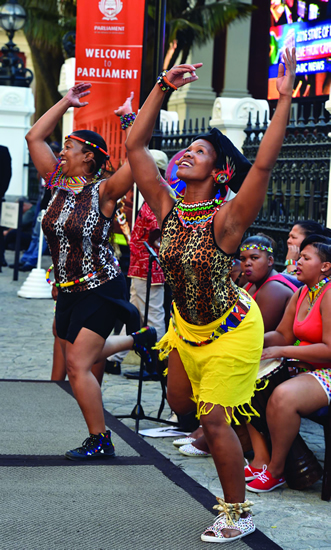 A Ceremonial Military Guard of Honour takes up positions in front of the National Assembly building and a military band sets up to the right of the building near Tuynhuys and plays the national anthem.
A Ceremonial Military Guard of Honour takes up positions in front of the National Assembly building and a military band sets up to the right of the building near Tuynhuys and plays the national anthem.
There is a 21-gun salute and an air force fly-past while the President takes the national salute from a special dais in front of the National Assembly building.
The 21-gun salute
The tradition of bestowing a salute by firing cannons originated in the 14th century when cannons and firearms came into use. In 1842, the 21-gun salute became the international norm for the highest honour a nation rendered and it is fired in honour of the Head of State, the national flag, the Head of State of a foreign nation, a member of a reigning royal family and a former Head of State.
The red carpet
The concept of rolling out the red carpet was originally reserved for kings and queens and signified a welcome of great hospitality and ceremony. Over time, the red carpet has been used to welcome Heads of State.
The presence of a praise singer
Praise singers have been a feature of the SoNA ceremony since 2005. They come from a variety of provinces and languages.
What happens after the SoNA?
- Political parties have an opportunity to, comment and raise questions on matters addressed in the President’s speech during a debate on the President’s Speech.
- This debate usually takes place over two days in a joint sitting.
- The President will have the opportunity to reply to the debate.
The SoNA will be broadcast live on:
- SABC radio stations.
- SABC TV.
- Parliament TV (DStv Channel 408).
Who attends the SoNA?
The SoNA guest list is made up of national, provincial and local government leaders, representatives of the House of Traditional Leaders, members of the public and representatives from civil organisations, among others.
Interesting fact
All guests in the public galleries of the National Assembly Chamber are able to listen to the SoNA in the language of their choice.
Besides the interpretation of the address into all 11 official languages, there is also South African Sign Language interpreting available for deaf people. Tactile interpretation is also available for deafblind people present at Parliament.
A shot in the arm for the North West
A shot in the arm for the North West lebangA partnership between the North West Department of Health, the private sector and communities is saving lives, said Health MEC Magome Masike.
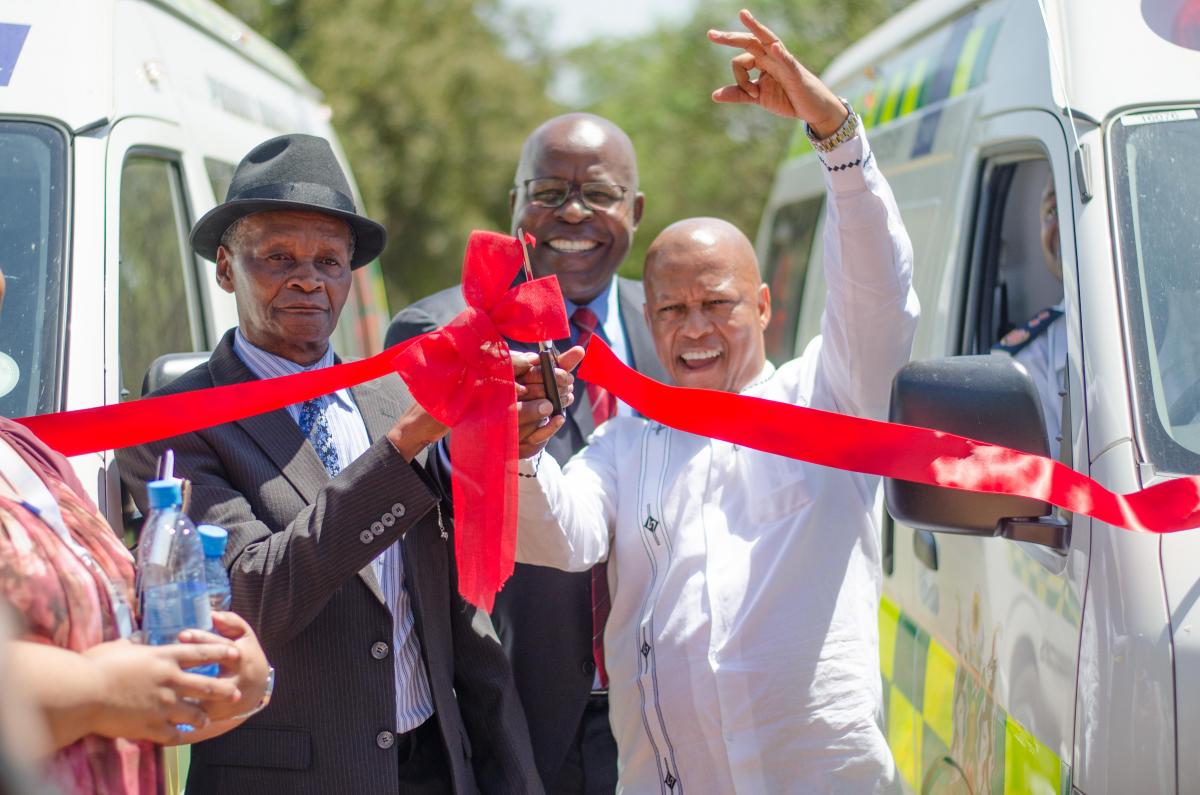 MEC Masike said the department has formed partnerships with various stakeholders over the years to improve the delivery of health services.
MEC Masike said the department has formed partnerships with various stakeholders over the years to improve the delivery of health services.
“We officially opened a new chemotherapy centre within the Radiation Oncology Unit at Tshepong Hospital Complex in Klerksdorp in 2017. The construction of the centrecame as a result of a donation by the Muslim community,” MEC Masike said.
Previously, patients had to be transported to Gauteng to access cancer treatment.
“We are trying by all means to ensure that our people do not have to leave the province to get services,” he explained.
Another success story is a maternity ward worth R6 million that was donated by Anglo Gold Ashanti. It was opened in May 2016 in the Botshabelo Community Health Centre in Stilfontein’s Khuma Township.
According to the MEC, about 446 healthy babies have been delivered in the centre since then.
One of the challenges reported by the department was a shortage of vehicles but Lonmin came to the rescue with an R11 million donation of 17 ambulances, a patient transporter and two mobile school health units.
Four of the vehicles will be permanently stationed at the Bapong Community Health Centre, while the remainder will service the Bojanala Platinum District Municipality, which includes Kgetlengrivier, Madibeng, Moses Kotane, Moretele and Rustenburg.
Matlou Mokgotho of Moruleng in the Moses Kotane Local Municipality said that although she personally has never had to call an ambulance, she had witnessed how fellow community members struggled to get emergency services because of the unavailability of ambulances.
Lonmin’s executive vice president of stakeholder engagement and regulatory affairs, Thandeka Ncube, said the company has committed to assisting the department by providing it with the resources that it does not have or cannot afford. She explained that the end goal is to ensure that all residents have access to adequate primary healthcare within their vicinities.
Future Lonmin projects include a forensic mortuary, a community healthcare centre for the Marikana community, and a multipurpose community centre for Majakaneng residents.
Bilateral talks yield good results
Bilateral talks yield good results vuyelwanInternational relations / Africa news
As South Africa and India celebrate 25 years of diplomatic relations, the two countries have pledged to continue working together.
South Africa and India committed to strengthening trade relations in 2018 at the Foreign Office Consultations (FOC) that took place in New Delhi, India. 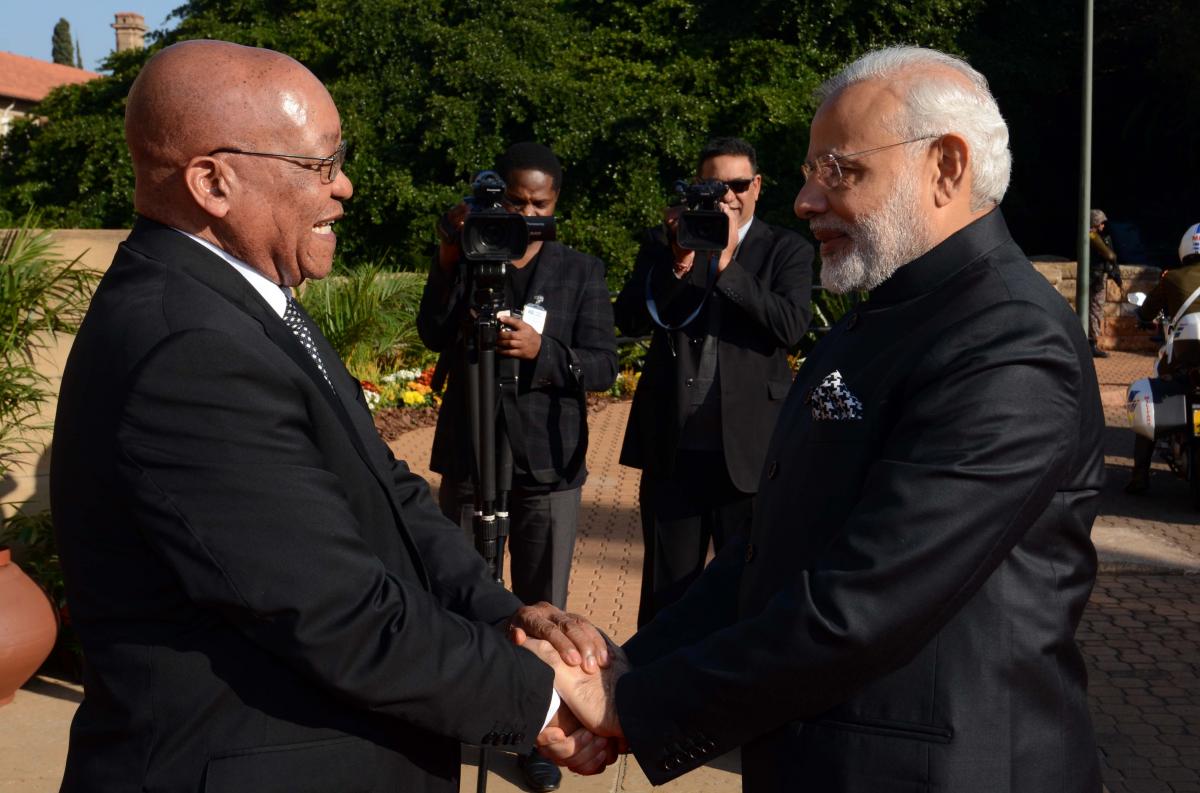
The meeting was co-chaired by the Department of International Relations and Cooperation (DIRCO) Deputy Director-General Professor Anil Sooklal, who is responsible for the Asia and Middle East Regions; and from the Indian side by Dr Neena Malhotra, Joint Secretary, East and Southern Africa, from the Ministry of External Affairs.
The consultations form part of the structured mechanism which governs bilateral relations between the two countries. This comprises a Joint Ministerial Commission (JMC) and the FOC.
The FOC serves to reflect on matters of mutual interest within the global arena, as well as take stock of progress in the implementation of the decisions of the previous JMC.
Progress reviewed
The meeting reviewed developments in the bilateral relationship between South Africa and India, since the 9th JMC held in Durban back in May 2015.
“South Africa and India enjoy a strategic partnership based on shared values and common interests and the meeting reflected on progress made with regard to the conclusion of a number of legal instruments, including agreements and memoranda of understanding, aimed at promoting co-operation within specific areas,” said DIRCO.
These areas relate to visa simplification procedures, co-operation in higher education, audio-visual co-production and renewable energy.
The meeting further reflected on ways to enhance commercial links between South Africa and India while noting that bilateral trade had grown steadily over the past decade.
By November 2017, two-way trade had reached R97 billion and further areas of co-operation were being explored in the financial services industry, defence procurement, agro-processing and deep mining equipment.
The two countries pledged to co-operate in order to fast track reform in institutions of global governance.
“Close collaboration would continue in the fight against terrorism and within important groupings such as Brazil, Russia, India, China and South Africa (BRICS), India, Brazil and South Africa (IBSA) and the Indian Ocean Rim Association (IORA), the latter where South Africa has taken over the chair for the period 2017-2019,” said DIRCO. The 10th JMC will take place in India this year.
Interesting Fact
By November 2017, the two-way trade had reached R97 billion.
Council established to root out corruption
Council established to root out corruption lebangGauteng Government steps up to fight corruption and promote clean governance.
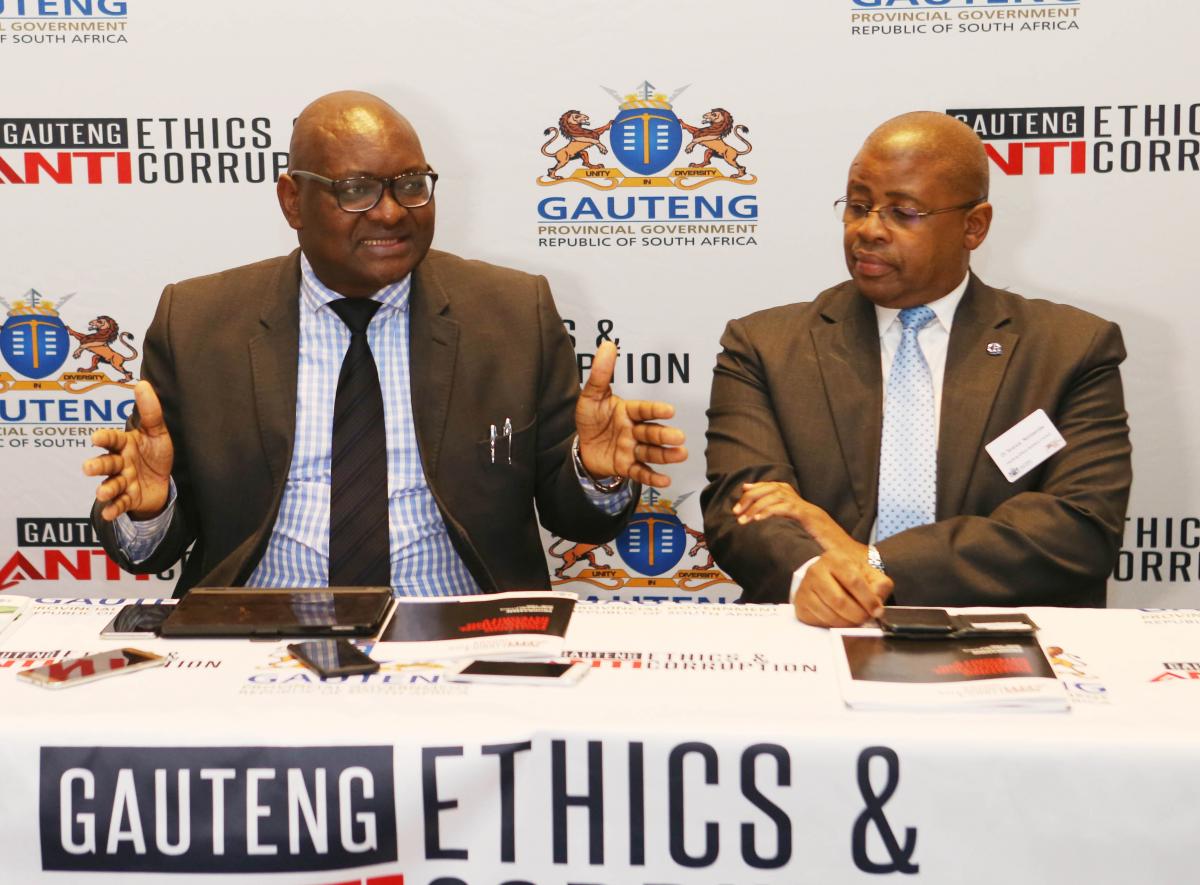
 Gauteng Premier David Makhura has committed to eradicate corruption and promote integrity and ethics in the public sector in the province.
Gauteng Premier David Makhura has committed to eradicate corruption and promote integrity and ethics in the public sector in the province.
The provincial government has established a civil society-led Ethics and Anti-Corruption Advisory Council, which will be the anti-corruption watchdog of the province and help the government to deal with corruption more effectively whenever it occurs.
Premier Makhura said this is an independent institution led by highly respected South Africans who have worked in various institutions involved in the promotion of integrity and ethics.
“As the Gauteng government, we want to subject ourselves to scrutiny by civil society on how we are doing in building an ethical culture and fighting fraud and corruption in our province,” said Premier Makhura.
The council is made up of ten members who are representatives from civil society, business, academia and community structures.
The former Auditor-General, Dr Terence Nombembe, who is now the Chief Executive Officer of South African Institute of Chartered Accountants, is the Chairperson of the council. The 4 Africa Exchange CEO, Advocate Fariyal Mukaddam is the Deputy Chairperson.
Other members include Nkululeko Leadership Consulting CEO Nonkululeko Gobodo; Gauteng Chairperson of the South African Non-Governmental Organisation Coalition Puseletso Madumise; Executive Director of Corruption Watch David Lewis; the Ethics Institute CEO Professor Deon Rossouw; Moral Regeneration Movement Chairperson, Father Smangaliso Mkhatshwa; General Secretary of the Federation of Unions of South Africa Dennis George; Gauteng Secretary of the Police and Prisons Civil Rights Union Lerata Joel Motsiri; and Professor Stella Nkomo of Pretoria University.
The council will make recommendations to the Executive Council and Legislature’s Integrity Commissioner on appropriate measures and actions to enhance ethics, integrity and accountability in the public sector.
The roles and responsibilities include:
- Monitoring trends in integrity and corruption
- Actively collaborating with stakeholders who can assist the Council in the execution of its responsibilities
- Advising the Premier and EXCO on appropriate actions to be taken
- Monitoring the adequacy and effectiveness of initiatives undertaken by the Premier and EXCO
- Reporting annually on “The state of ethics, integrity and clean governance in the Gauteng City Region”
- Promoting activism and public campaigns among citizens on rule of law, ethics, integrity and accountability in public and private sector organisations.
“We trust that your ultimate reward will be the smiles, the sighs of relief and the tears of joy especially from the poor and most vulnerable in our society who would otherwise have been denied a public good or service as a result of corruption,” the Premier said at a council meeting.
Nombembe said the council is trying to move away from the perception-based approach to a reality-based approach.
“I guess it is time to start pulling together various images of information that come from each of our organisations. [Monitoring of trends] cannot remain informal, or at the level of perception, nor the level of uncertainty, there has got to be authentic facts that can be used from research and investigation,” he said.
He also said the council will elevate excellence where excellence is demonstrated in government or society.”
Crafting a brighter future
Crafting a brighter future lebangLocal Government
An upskilling programme by the KwaDukuza Local Municipality is expected to change the lives of young people in the area.
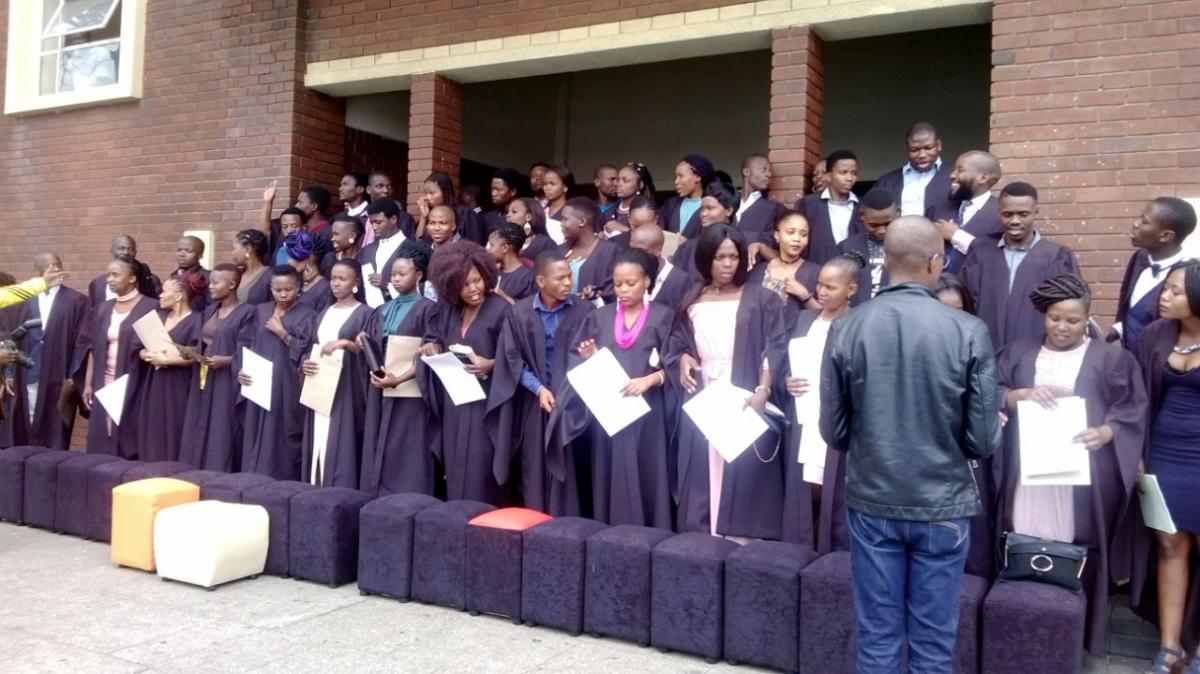 Over 90 young people from the poverty-stricken area of KwaDukuza, KwaZulu-Natal, have been given a new lease on life after they graduated from a Fibre Processing and Furniture Manufacturing Level II Upholstery course.
Over 90 young people from the poverty-stricken area of KwaDukuza, KwaZulu-Natal, have been given a new lease on life after they graduated from a Fibre Processing and Furniture Manufacturing Level II Upholstery course.
The course is an initiative of the municipality to help unemployed youth with skills that will enable them to find employment. It forms part of government’s Comprehensive Rural Development Programme that aims to tackle under development, food security, unemployment, poverty and other social ills which have become synonymous with rural areas.
With the programme approved by the South African Qualifications Authority and accredited by the Fibre Processing and Manufacturing Sector Education and Training Authority as a national service provider of Level 2 vocational skills, participants walk away with a reputable qualification.
“These young people will be able to provide employment opportunities to other youth who were not part of the programme. The fact that they now have certificates means that they can work anywhere they want or even open up their businesses,” said KwaDukuza Mayor Richard Mthembu.
Graduate Phumlani Ndlovu thanked the municipality for giving them these skills.
“I heard about the opportunity from my ward councillor. I was sitting helpless at home without a job. Now, thanks to this wonderful initiative, we have new skills and we’ll be able to do more to contribute to the economy,” said Ndlovu.
Another graduate, Bonisile Mabaso, said she was very happy to be part of the programme and feels the course has given her hope.
“I didn't finish matric because I was sick. I hope this certificate will change my life completely as I will be able to do something for myself.”
KwaDukuza Ward 25 Councillor Sabelo Mfeka said programme participants were selected through ward committees.
“Most of the participants are from poor families,” he said.
Dignity for sexual assault survivors
Dignity for sexual assault survivors lebangEmpathy and support given to abuse survivors in dedicated care centres.
 The Gauteng Department of Health has responded to the needs of sexual and gender-based violence victims with the relaunching of the Sinakekelwe Thuthuzela Care Centre at Thelle Mogoerane Hospital in Vosloorus.
The Gauteng Department of Health has responded to the needs of sexual and gender-based violence victims with the relaunching of the Sinakekelwe Thuthuzela Care Centre at Thelle Mogoerane Hospital in Vosloorus.
The centre seeks to lessen the trauma of sexual violence and to reduce secondary victimisation of survivors by providing professional medical care, counselling, and access to dedicated investigators and prosecutors all under one roof.
Department spokesperson Lesemang Matuka said that previously the victims had to travel far to access these services. The new facility will help people from Katlehong, Thokoza, Vosloorus and surrounding areas.
“As the department, we are striving towards better health for all by training and capacitating clinicians with special skills to manage victims of crime. In the past three years, 106 clinicians have completed a Sexual Assault Care Practitioner Course,” he said.
Matuka said his department would continue partnering with NGOs and other partners who assist in providing psychosocial support with the emphasis on prevention rather than post-violence care.
Thuthuzela care centres were established to assist citizens when reporting rape and other sexual offences. Victims are dealt with in a dignified and caring environment.
The centres are implemented by the National Prosecuting Authority, together with the departments of Health, Social Development and Justice and Constitutional Development, as well as the South African Police Services.
There are seven centres in Gauteng. The first one was opened at Chris Hani Baragwanath Hospital in 2000.
Sinakekelwe Thuthuzela Care Centre senior clinical manager Dr Efadzwa Tipoy advised community members that should they become victims of sexual violence, it is imperative they report the incident at the centre as soon as possible.
“The facilities provide treatment to prevent contracting sexually transmitted infections including Hepatitis B and HIV. Pills to prevent pregnancy from the sexual offence will also be provided. Do not wash. Bring the clothes that you were wearing, wrapped in brown paper and not a plastic bag to the facility,” said Dr Tipoy.
He added that since the opening of the centre, there has been an uptake in the services that they provide and there is restored dignity as clients can now shower after an examination.
One of the challenges that the clinic continues to face is that clients often arrive too late – it is important that evidence be collected and medication be given within 72 hours of an attack.
Electricity thieves left powerless
Electricity thieves left powerless lebangLocal Government
The Rand West City Local Municipality has installed electricity meters to put an end to illegal connections.
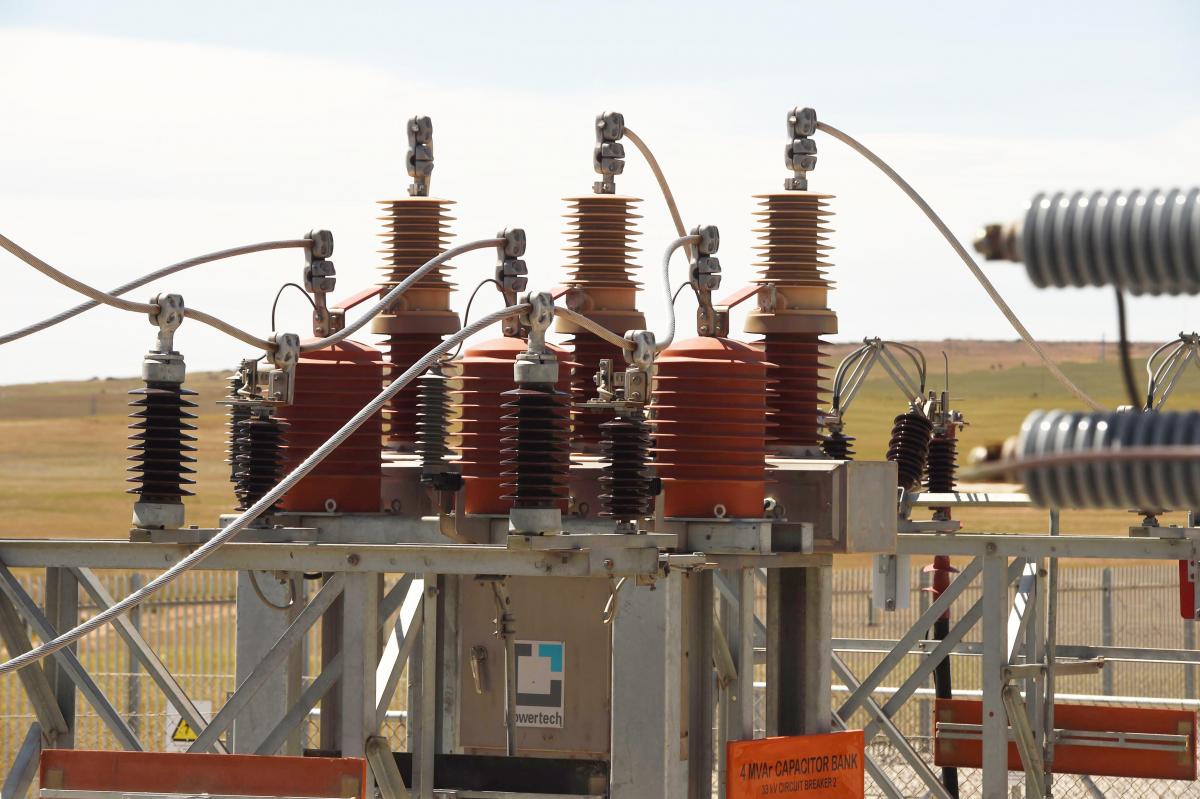 Electricity meters have been installed at Madala Hostel in Mohlakeng, Randfontein, to help curb illegal power connections.
Electricity meters have been installed at Madala Hostel in Mohlakeng, Randfontein, to help curb illegal power connections.
The move is aimed at doing away with izinyoka-nyoka (illegal electricity connections) and ensuring that all residents procure electricity like law-abiding ratepayers.
Rand West City Local Municipality spokesperson Tshidiso Tlharipe said 108 units were fitted with electricity meters.
“This will put residents of that region in a position to procure electricity from reputable service providers and that’s what we want,” said Tlharipe.
He added that the municipality is also planning to curb water losses by installing water meters at the hostels.
Randfontein resident Cheryl Nhlapo said this move will ensure that all residents are on an equal footing when it comes to paying for the water and electricity they use.
“It brings me joy to know that we are all equal now and that this will stop illegal electricity connections in our neighbourhoods,” said Nhlapo.
The municipality has been experiencing serious challenges of water and electricity loss and, according to Tlharipe, the Madala hostel’s widespread illegal power connections contributed significantly to the 13 percent loss in electricity.
“What people tend to not realise is that illegal connections are costing us a lot as a municipality and negatively affect the financial stability of the municipality… so in essence, this truly is a milestone for us and we have called upon all beneficiaries of this activity to legally procure electricity,” said Tlharipe.
Four things to do if you are involved in an accident
Four things to do if you are involved in an accident LondekileBeing in an accident can have costly consequences if not managed properly.
The main factors that can lead to an accident are distracted or drunk driving, speeding and reckless driving, running red lights, night driving, potholes and animal crossings. It is important to be alert and maintain a safe following distance. Rather arrive at your destination a bit later than never.
Accidents can happen despite all the precautions a driver takes, however. Here are a few important things you should do which could save you a lot of angst, time and money.
Think ahead
When you travel, always make sure loved ones know where you are going. Also, save family members and friends’ details on your cellphone. Should you not be in a position to notify your loved ones of an accident, bystanders will be able to access them via your phone.
It is also crucial to ensure you have the contact numbers for emergency services.
In addition, make sure your personal affairs are in order and that you have car and life insurance so that in the event of a fatal accident, your family will be taken care of.
Pull over
Being involved in an accident and making a run for it is punishable by law. Pull your car off to the side of the road where it is safe. Enquire if the second party is alright or in need of medical attention and when you can, check your own car for damage.
Be careful about what you say next
When you are involved in an accident, it is important to stay calm. Do not get upset or start apologising profusely as the other party can use this against you to force you to pay for damages, even if the accident was not your fault. Rather tell your side of the story to the police and insurance company when you make a statement.
Jot down a few notes
Once you have safely parked your vehicle, swop insurance details with the party who was also involved in the accident. Jot down their names and contact details as well as the model of the car, the date, time and location. It is advisable to call the police whilst you are still on the scene of the accident.
Take photos of both vehicles
Be sure to take photos of the damage caused to both your vehicle and the other person’s vehicle. Ask to take a photo of the other party’s driver’s licence and ID. Also take photos of the surrounding area so it is easy to identify exactly where the accident took place and to verify your story.
Did you know?
The Road Accident Fund (RAF) is an organisation that provides social insurance cover to South African road users. For more information, contact RAF from Mondays to Fridays on
0860 23 55 23.
From the Union Buildings - a message from the President
From the Union Buildings - a message from the President UrsulaLet us move SA forward
The long holiday period is over and we are pleased that the full
complement of our public servants are now back at work with great enthusiasm at their various departments. We also trust that you came back most rejuvenated and looking forward to the challenges of this year, as we brace ourselves for the ultimate months of this financial year, ending in March 2018.
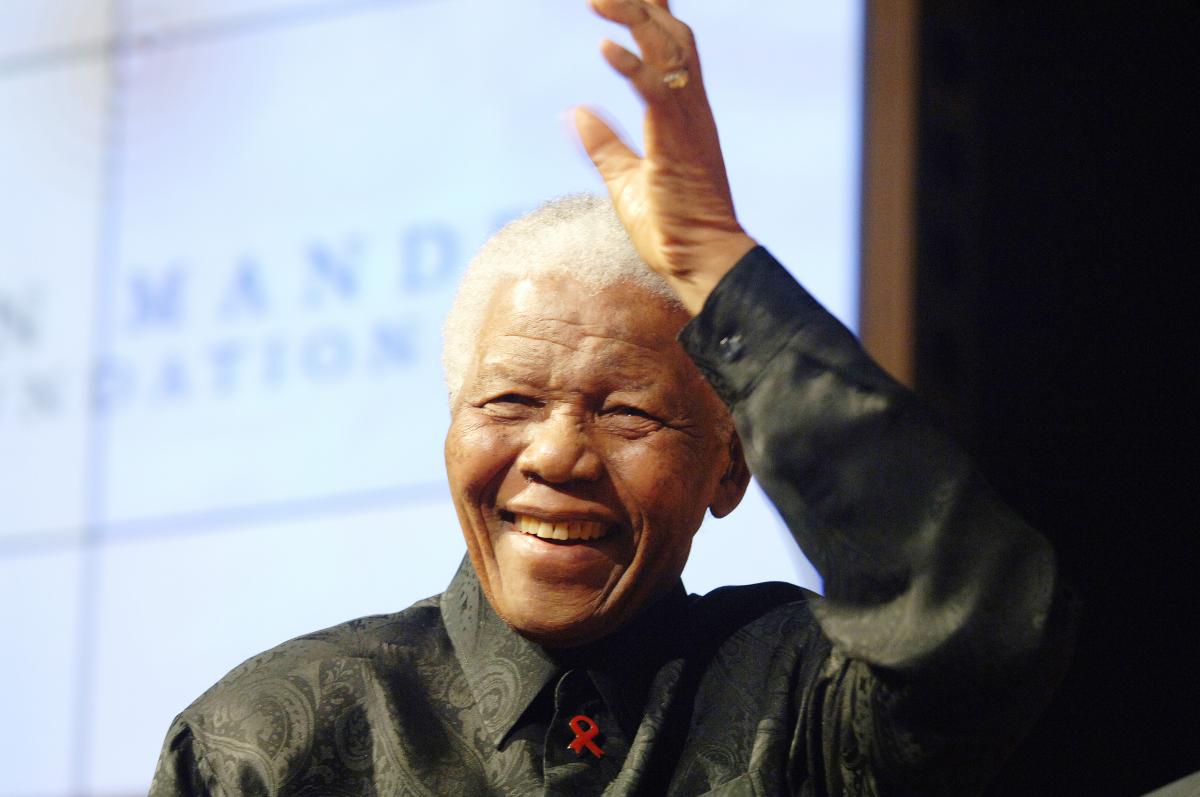
This year promises to be yet another great year as we are dedicating it to another outstanding liberation struggle hero and first President of the democratic South Africa, Mr Rolihlahla Nelson Mandela, who would be turning a hundred years old this year in July.
Following the lead from the ruling party, the African National Congress (ANC), we are celebrating this centenary under the theme, "100 Years of Nelson Mandela: The Year of Renewal, Unity and Jobs." In celebrating Tata Madiba's centenary, as we did with Tata Oliver Tambo last year, we continue to draw inspiration from his highest sense of responsibility and duty towards the people he served, his admirable work ethic, sensitivity to the plight of the poor, discipline, hard work and unflinching commitment to the vision of a free, equal and prosperous society. Every step of the way in our service delivery this year should remind all of us about our long walk to freedom in this country, including now most especially, the economic freedom through the radical socio-economic transformation that we have embraced.
Let us continue to work hard at our various stations, to ensure that we deliver services with dignity, commitment and trustworthiness, so that we improve the lives of the people.
In the year 2018 we will also celebrate the centenary of the birth of Mama Albertina Nontsikelelo Sisulu, a stalwart of our struggle whom we will remember for her strength, compassion and tireless commitment to the people of this country. As a prominent leader of the ANC, ANC Women’s League, Federation of South African Women and the United Democratic Front, Mama Sisulu represented the epitome of selfless service to the people that we continue to emphasize. We will therefore use this year to remember her life and outstanding contribution to the cause of freedom and democracy.
We have also welcomed new leadership of the party leading the government, the ANC, as elected at its 54th National Conference in December 2017. It is important to note that the ruling party also adopted new policies which will be further considered among other forums such as the Cabinet Lekgotla and ultimately find their way into public policy. It is thus very important for us to familiarise ourselves with these policies to be in a better position to be their custodians, and implement them effectively in service to our people.
The new policy thrust will also be clearly articulated in the annual State of the Nation Address (SONA) in February, and we should all embrace the programmes to be outlined for this year which are meant to advance once again our efforts to improve the lives of the poor in this country and create employment. I urge everyone to make this important SONA event a success.
The SONA is very important in setting the tone for the year, pointing out the new programmes that will be implemented during the year, new innovations, and best ways of injecting the much needed momentum in service delivery as well as growing our economy to deliver jobs to our people. Therefore the SONA is a very important marching order that sets every process of government in motion.
As we indicated, it is our firm belief that the state must continue to play a central and strategic role in the economy by directing private sector investment and using strategic levers to achieve transformation and to develop underdeveloped areas in our economy. Job creation is still one of our most important priorities, as it remains a critical denominator in our national poverty alleviation strategies.
Our National Development Plan remains our guiding document in driving our national development agenda in this second phase of our democratic transition. In this penultimate year of our Medium-Term Strategic Framework period, we need to spare no effort in achieving the goals we set ourselves as the nation to deliver services. It is also important that we do not lose focus on the programmes singled out in our Nine-Point Plan, so that we can accelerate economic growth and create new employment opportunities to fight joblessness, poverty and inequality and continue to build an inclusive society.
Lastly, education is one of the most fundamental enablers in economic empowerment of our people and their participation in economic activities. We will therefore continue as government to open the doors of learning to all. One of the ways will be through providing free education to all who cannot afford, and we trust that at this crucial point of the beginning of the year, most of these learners will be enabled to find space in our educational institutions, as we do with those at the basic education level.
We look forward to a better 2018 together moving our country forward.
Hamba kahle Libby Lloyd
Hamba kahle Libby Lloyd vuyelwanThe Media Development and Diversity Agency (MDDA) has expressed condolences to the family, friends and media colleagues following the passing of Libby Lloyd. 
“Ms Lloyd’s contribution to the MDDA and to the community media sector will always be remembered for the firm foundations she laid for the agency to continue its invaluable role of providing access to the media for all – particularly our historically disadvantaged communities who have been side-lined by the traditional media,” MDDA Acting Chairperson Musa Sishange said.
Lloyd passed away on 19 January 2018 after battling an illness since last year.
At the time of her passing, Lloyd served on a panel of experts that assisted the Telecommunications and Postal Services Ministry in the development of the Integrated White Paper on the Information and Communication Technologies (ICT) Policy.
She started out as a journalist having worked at Capital Radio, National Public Radio in the United States and BBC Ireland.
In addition to her many achievements in the media sector, she was the founding Chief Executive Officer of the MDDA following its establishment by an Act of Parliament in 2002.
“Appointed in August 2003, Lloyd played a defining role in setting up the agency, not only establishing the operating systems but also forming long lasting strategic partnerships to harness the resources across the sector to the benefit of community media.
“Under her leadership, which ran until 2006, the MDDA allocated financial support to just under 100 different media projects across all provinces of South Africa, with the MDDA board approving over R20 million in grants to these projects,” said the MDDA.
Under Lloyd’s leadership the MDDA maintained an unbroken record of clean audits, testimony to the robust governance structures she and her management team had set up.
“Through her work with the MDDA in creating an enabling environment for the community media sector, Lloyd’s legacy will include giving a concrete platform to the often-marginalized voices across all our communities, regardless of race, gender, disability and economic class,” said the MDDA.
“I think because she was my mother, i often forgot what a huge role she played in our democracy. Over the past few days i've been in awe of everything she accomplished, and those that she helped along the way. What a woman.” Sophie Mjwara, daughter of Libby Lloyd. -Credit: Facebook.
Home sweet home for freedom fighters
Home sweet home for freedom fighters LondekileThe Mpumalanga government is looking after military veterans who sacrificed so much to fight for their beloved country.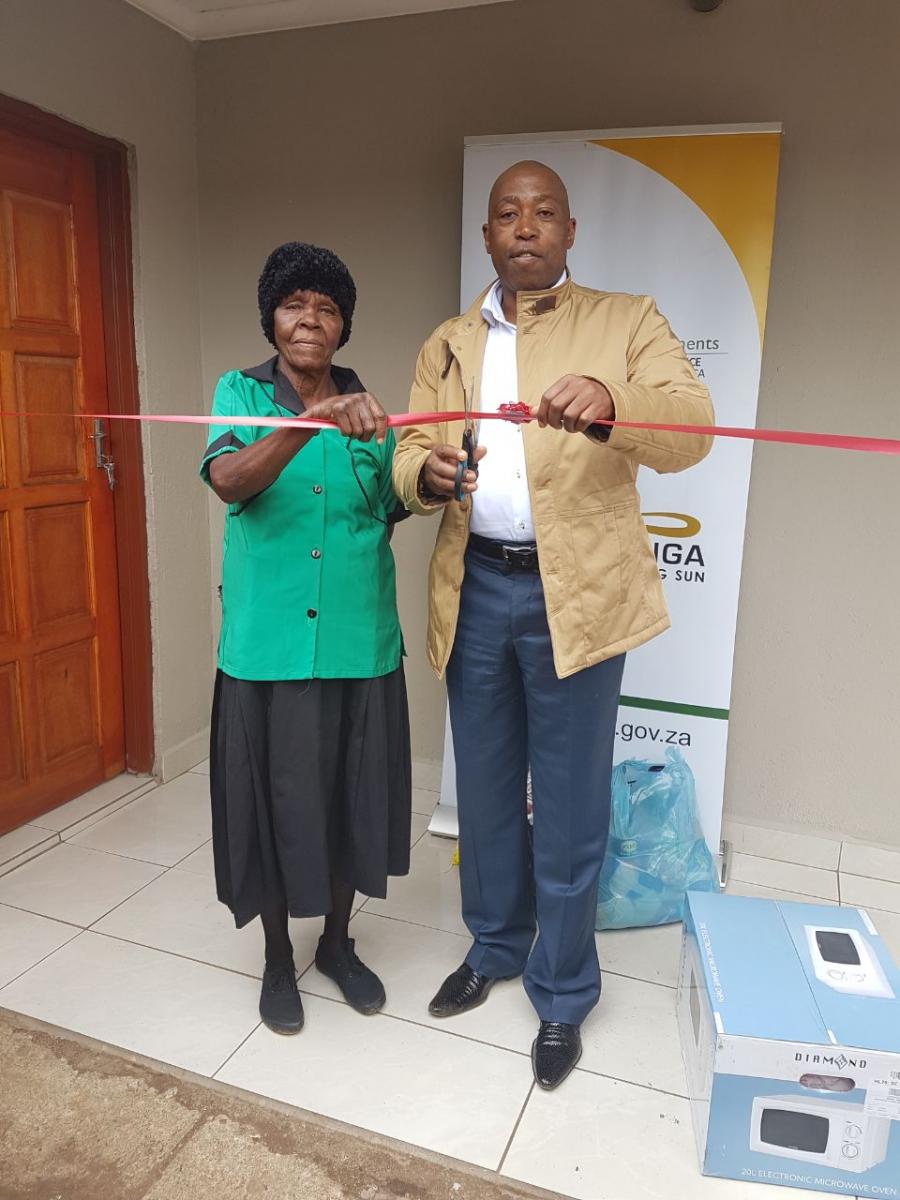
Gogo Saida Sibitane (87) is a selfless patriot who fought for South Africa’s freedom in the 1980s. During that time, she was exiled to Zambia and Mozambique – far from her home and family. Today, her efforts have been rewarded with a house of her own.
Sibitane, who lives in Mbangwane near Malalane in the Nkomazi Local Municipality, was given a home by the Mpumalanga Department of Human Settlements to thank her for her service to South Africa.
She recalled how badly she was treated by the apartheid government.
“The apartheid soldiers used to come and destroy all our structures where we camped and I had to endure torture from both soldiers and RENAMO insurgents,” she recalled.
Sibitane was one of 22 beneficiaries who received new houses from MEC Speedy Mashilo. The handover formed part of the department’s programme of building 87 housing units for military veterans during the current financial year.
“I fought for this country and this is one of the benefits of being a veteran. I would like to thank all those who made sure that I also have become part of the many who got shelter. I can now sleep peacefully without fear of being attacked by thugs,” said Sibitane.
MEC Mashilo thanked the military veterans for their service. A further 14 houses will be given to recipients in Bushbuckridge and Mkhondo Local Municipalities, respectively.
“There is nothing more devastating than living without proper shelter. These men and women are deserving of the homes they are getting. They fought for the country’s freedom,” MEC Mashilo
said.
Jobs: Labour Feb 2018
Jobs: Labour Feb 2018 vuyelwanDirector: Communication
Centre: Directorate: Communication, Head Office
Reference No: HR 4/18/01/01 HO
Salary: All inclusive: R948 174 per annum
Enquiries: Mr. TPM Thejane, Tel: (012) 309 4865
Assistant Director: Human Resource Operations
Centre: Chief Directorate: Human Resources Management, Head Office
Reference No: HR 4/18/01/15 HO
Salary: Commencing: R334 545 per annum
Enquiries: Ms. PP Mthethwa, Tel: (012) 309 4549
Assistant Director: Policy Research and Monitoring
Centre: Directorate: Human Resource Management, Head Office
Reference No: HR 4/18/01/16HO
Salary: Commencing: R334 545 per annum
Enquiries: Ms. L Rudah, Tel: (012) 309 4569
Deputy Director: Finance
Centre: Supported Employment Enterprises, Silverton
Reference No: HR 4/17/11/01
Salary: All Inclusive: R657 558 per annum
Enquiries: Mr. AA Mabusela, Tel: (012) 843 7300
Head Office
Chief Director: Human Resources Management, Department of Labour, Private Bag X117, Pretoria, 0001
Assistant Director: Risk Management
Centre: Provincial Office: Limpopo
Ref No: HR 4/6/6/124
Salary: Commencing: R334 545 per annum
Enquiries: Ms. TE Maluleke, Tel: (015) 290 1662
Assistant Director: Human Resource Operations and Employment Relations
Centre: Provincial Office: Limpopo
Ref No: HR 4/6/6/122
Salary: Commencing: R334 545 per annum
Enquiries: Mr. MS Magwasha, Tel: (015) 290 1627
Provincial Office
Chief Director: Provincial Operations: Limpopo, Department of Labour, Private BagX 9368, POLOKWANE
Psychometrist / Registered Counsellor Grade 1 (2 posts)
Centre: Labour Centre: Phuthaditjaba
Reference No: HR4/4/8/139
Labour Centre: Mthatha
Reference No: 4/4/1/101
Salary: Commencing: R514 476 (OSD)
Enquiries: Ms. M Mamburu, Tel: (058) 713 0373
Enquiries: Mr. S Mapukata, Tel: (041) 506 5000
Provincial Office
Chief Director: Provincial Operations: Free State, Department of Labour, PO Box 522, Bloemfontein, 9300
Chief Director: Provincial Operations: Eastern Cape, Department of Labour, Private Bag X9005, East London, 5200
Specialist: Employer Audit
Centre: Provincial Office: Mmabatho (North West)
Reference No: HR 4/4/9/303
Salary: All Inclusive: R779 295 per annum
Enquiries: Mr. ABM Mampuru, Tel: (018) 387 8100
Provincial Office
Chief Director: Provincial Operations: Department of Labour, North West, Private Bag X2040, Mmabatho, 2735
Senior Employment Service Practitioner III ( ESP3)
Centre: Labour Centre: Bloemfontein
Ref No: HR 4/4/8/154
Salary: Commencing: R417 552 per annum
Enquiries: Ms. WE Williams, Tel: (051) 411 6402
Provincial Office
Chief Director: Provincial Operations: Free State, Department of Labour, PO Box 522, Bloemfontein, 9300
Assistant Director: Public Employment Services
Centre: Provincial Office: Emalahleni
Reference: HR 4/4/7/55
Salary: Commencing: R417 552 per annum
Enquiries: Mr. EA Masemola Tel: (013) 655 8960
Provincial Office
Chief Director: Provincial Operations: Mpumalanga, Department of Labour, Private Bag X7263 Witbank, 1035
Closing date for applications: Monday, 19 February 2018 at 16:00
For full details of the advertised posts visit our website: www.labour.gov.za
Applications must be submitted on form Z83, obtainable from any Public Service Department or on the internet at www.gov.za/documents. The fully completed and signed form Z83 should be accompanied by a recently updated, comprehensive CV as well as recently certified copies of all qualification(s) including a Senior Certificate and ID-document [Driver’s license where applicable]. Non-RSA Citizens/Permanent Resident Permit Holders must attach a copy of their Permanent Residence Permits to their applications. Should you be in possession of a foreign qualification, it must be accompanied by an evaluation certificate from the South African Qualification Authority (SAQA). Applicants who do not comply with the above-mentioned requirements, as well as applications received late, will not be considered. The Department does not accept applications via fax or email. Failure to submit all the requested documents will result in the application not being considered. Correspondence will be limited to short-listed candidates only. If you have not been contacted within eight (8) weeks after the closing date of this advertisement, please accept that your application was unsuccessful. Suitable candidates will be subjected to a personnel suitability check (criminal record, citizenship, credit record checks, qualification verification and employment verification). Where applicable, candidates will be subjected to a skills/knowledge test. All shortlisted candidates for SMS posts will be subjected to a technical competency exercise that intends to test relevant technical elements of the job, the logistics of which be communicated by the Department. Following the interview and technical exercise, the selection panel will recommend candidates to attend generic managerial competencies using the mandated DPSA SMS competency assessment tools. Successful candidates will be appointed on a probation period of 12 months. The Department reserves the right not to make any appointment(s) to the above post. The successful candidate will be expected to sign a performance agreement. The Department of Labour is an equal opportunity affirmative action employer. The employment decision shall be informed by the Employment Equity Plan of the Department. It is the Department’s intention to promote equity (race, gender and disability) through the filling of this post(s) with a candidate whose transfer / promotion / appointment will promote representativity in line with the numerical targets as contained in our Employment Equity Plan.
Jobs: Labour Feb 2018
Jobs: Labour Feb 2018 vuyelwanChief Director: Provincial Operations
Centre: Provincial Office: Eastern Cape
Reference No: HR 4/18/02/14HO
Salary: All inclusive package: R1 127 334 per annum
Enquiries: Ms. M Bronkhorst, Tel: (012) 309 4969
Applications:
Head Office
Chief Director: Resources Management, Department of Labour, Private Bag X117, Pretoria, 0001 Or hand deliver at: Laboria house, Department of Labour (HQ), 215 Francis Baard, Laboria House.
Requirements: Three (3) year Degree (NQF level 7 as recognised by SAQA) in Public Administration/Business Administration /Public Management/ Business Management/ Labour Law/ Operations Management/ Project Management. Five (5) years of experience at a senior management level. Five (5) years functional experience in operational / administrative service. A valid driver’s licence. Knowledge: Recruitment and Selection. Human Resource administration. Relevant legislation in Labour Relations Act. Public Service Regulation Act. Basic Condition of Employment Act. Departmental Policies and procedures. Public Finance Management Act. Project Management. Batho Pele Principles. Skills: Management. Interpersonal. Verbal and written communication. Computer literacy. Negotiation. Presentation.
Duties: Develop and manage the effective implementation of Inspection and Enforcement Services including the specialization model. Manage Labour Market Information system services in the Province. Develop and manage effective implementation of Public Employment Services. Manage implementation of Management Support Services and financial management in line with relevant prescripts. Manage strategic plan of integrated beneficiary service in the Province in line with the relevant prescripts. Develop strategic plan to reach the community of the Province. Promote sound work ethics on service delivery. Establish and maintain partnerships and working relations with key relevant stakeholders. Manage all resources within the Chief Directorate.
Jobs: Social Development Feb 2018
Jobs: Social Development Feb 2018 vuyelwanDirector: Women Empowerment And Gender Focal Point
Chief Directorate: Gender
Centre: HSRC Building, Pretoria
Ref No. A1/A/2018
Total cost-to employer package: R948 174 per annum. This inclusive remuneration package consists of a basic salary, the states’ contribution to the Government Employees Pension Fund and a flexible portion that may be structured i.t.o. the applicable rules.
Requirements: An appropriate recognised Bachelor’s Degree in Social Science or equivalent qualification (NQF level 7) as recognised by SAQA PLUS five years middle/senior management experience in the gender field. Expertise on gender issues. Competencies needed: Project management skills. Internal and external networking skills. Policy analysis and development skills. Financial management skills. Communication (written, verbal and liaison) skills. People management and empowerment skills. Client orientation and customer focus skills. Negotiation skills. Strategic planning skills. Presentation skills. Computer literacy. Attributes: Creative. Innovative. Ability to work under pressure. Ability to work in a team and independently. Adaptive. Honesty and Integrity. Independent thinker. Cost consciousness. Business ethics.
Duties: Develop policy on gender issues. Influence the development of the departmental policies in respect of gender issues. Monitor the implementation of policy, both at national and provincial spheres. Develop plans to assist various directorates of the Department to comply with the National and International obligations on gender. Support the National Gender Machinery in the compilation of country reports and where necessary to assist in representing the South African Government and International gender fora as appropriate. Compile regular reports for various gender stakeholders and organs of Government on the activities of the Gender Focal Point. Commission research and develop appropriate research proposals on gender issues. Develop or procure appropriate training on gender issues for national and provincial Departments in collaboration with the Directorate: HRD and Performance Management. Develop and/or facilitate the development of, the gender machinery (institutional arrangement) of the Department of Social Development at national and provincial level in order to ensure implementation of South Africa’s National Policy Framework for Women’s Empowerment and Equality. Manage the human, financial and material resources of the Gender Focal Point.
Note: In terms of the Chief Directorate’s employment equity targets, African males and persons with disabilities are encouraged to apply.
Enquiries: Ms D Moema Tel: (012) 312-7394
Director: Human Resource Management
Chief Directorate: Human Capital Management
Centre: HSRC Building, Pretoria
Ref no. A1/B/2018
Total cost-to employer package: R948 174 per annum This inclusive remuneration package consists of a basic salary, the states’ contribution to the Government Employees Pension Fund and a flexible portion that may be structured i.t.o. the applicable rules.
Requirements: An appropriate Bachelor’s Degree (NQF level 7) as recognized by SAQA or equivalent qualification in the field of human resource management PLUS five (5) years of relevant experience at a middle/senior managerial level. Sound knowledge of the, i) Public Service Act, ii) Public Service Regulations, iii) Employment Equity Act, iv) Basic Conditions of Employment Act, v) Codes of Remuneration, vi) Public Finance Management Act, vii) Labour Relations Act, viii) Collective Agreements, xi) Integrity Management Framework and Ethics.Competencies needed: Negotiation skills. People management and empowerment skills. Financial management skills. Client orientation and customer focus. Service delivery innovation. Project management skills. Good communications skills (written verbal and liaison). Presentation skills. Planning and organising skills. Problem-solving skills. Computer literacy. Attributes: Ability to work independently and in a team. Ability to work under pressure and to cope with high workload. Innovative and creative. Integrity and honesty. Assertive. Self-starter. Accurate and compliant. Honesty and integrity.
Duties: Efficient management of the Directorate: Human Resource Management. Manage recruitment, selection, appointment, transfer and promotions. Facilitate the review, development and implementation of delegations in terms of the Public Service Act and Public Service Regulations and Departmental policies with regard to human resource management. Manage compensation, conditions of service of employees and human resource personnel records. Manage employee health and wellness programmes. Manage conflict of interest, including financial disclosures of employees and applications for external remunerative work.
Note: In terms of the Chief Directorate’s employment equity targets, African males and females, Coloured females as well as persons with disabilities are encouraged to apply.
Enquiries: Mr D Chinappan Tel: (012) 312-7504
Applications: The Director General, Department of Social Development, Private Bag X901, Pretoria, 0001, Physical Address: HSRC Building, 134 Pretorius Street
Closing date: 16 February 2018
Directions to candidates: Curriculum vitae with a detailed description of duties, the names of two referees and certified copies of qualifications and identity document must accompany your signed application for employment (Z83). In the event of hand delivery of applications, applicants must sign an application register book as proof of submission. All shortlisted candidates for SMS posts will be subjected to a technical exercise that intends to test relevant technical elements of the job, the logistics of which will be communicated by the Department. Following the interview and technical exercise, the selection panel will recommend candidates to attend a generic managerial competency assessment (in compliance with the DPSA Directive on the implementation of competency based assessments). The competency assessment will be testing generic managerial competencies using the mandated DPSA SMS competency assessment tools. The successful candidate will sign an annual performance agreement, complete a financial discloser form and will also be required to undergo a security clearance. If the candidate is applying for an OSD post, certificates of service must be attached to the CV. It is the applicant’s responsibility to have foreign qualifications evaluated by the South African Qualification Authority (SAQA). Failure to submit the requested documents will result in your application not being considered. Personnel suitability checks will be conducted on short listed candidates and the appointment is subject to positive outcomes of the checks. Correspondence will be limited to shortlisted candidates only. The selection of candidates will be done with due regard to the relevant aspects of the selection process as set out in the Public Service Regulations, 2016, Regulation 67.Applications received after the closing date will not be taken into consideration. No faxed or e-mailed applications will be considered. If you have not been contacted within three months after the closing date of this advertisement, please accept that your application was unsuccessful. Candidates requiring additional information regarding the advertised posts may direct their enquiries to the person as indicated above. Internal applicants must submit and register their employment applications at the register book in the DSD reception area for the attention of Ms E Steenkamp. It is our intention to promote representivity (race, gender and disability) in the Public Service through the filling of these posts and candidates whose transfer/ promotion/ appointment will promote representivity will receive preference.
It is our intention to promote representivity (race, gender and disability) in the Public Service through the filling of this post and candidates whose transfer / promotion/ appointment will promote representivity will receive preference.
Let's fight cable theft together
Let's fight cable theft together vuyelwanSouth Africans are urged to work with government to stop cable theft
The Passenger Railway Agency of South Africa (PRASA) has made a call to government, stakeholders and communities to assist in the fight against cable theft. 
The call was prompted by the ongoing criminal activities that take place on the railways that result in loss of lives as trains derail.
“The stakeholders have made a passionate appeal to government to come to the party and provide the necessary intelligence and resources to enable the passenger rail system to implement preventative measures to fight crime,” said PRASA Acting Group CEO, Cromet Molepo.
Crime damages valuable infrastructure but it also affects commuters.
The railway agency said its efforts to modernise its aging infrastructure have been hampered by the rampant crime and destruction of rail assets.
Molepo called citizens to assist the railway agency and report crimes such as cable theft.
“The stakeholders call upon communities to be our eyes and ears and report crime and isolate these criminal elements within our communities. If there is no market for the stolen goods, there will be no need for crime. Those individuals who are brave enough to stand up and make a difference will be protected.”
PRASA urged commuters or anyone with information on cable theft or other issues related to rail matters to call:

Made by a woman, for women – with love!
Made by a woman, for women – with love! LondekileA young woman has come up with a solution that will help keep girl children in school throughout the month.
The dream of ensuring that young girls from rural areas are not forced to miss school when they menstruate prompted Euodia Naanyane-Bouwer (36) to create a washable, reusable and eco-friendly sanitary towel.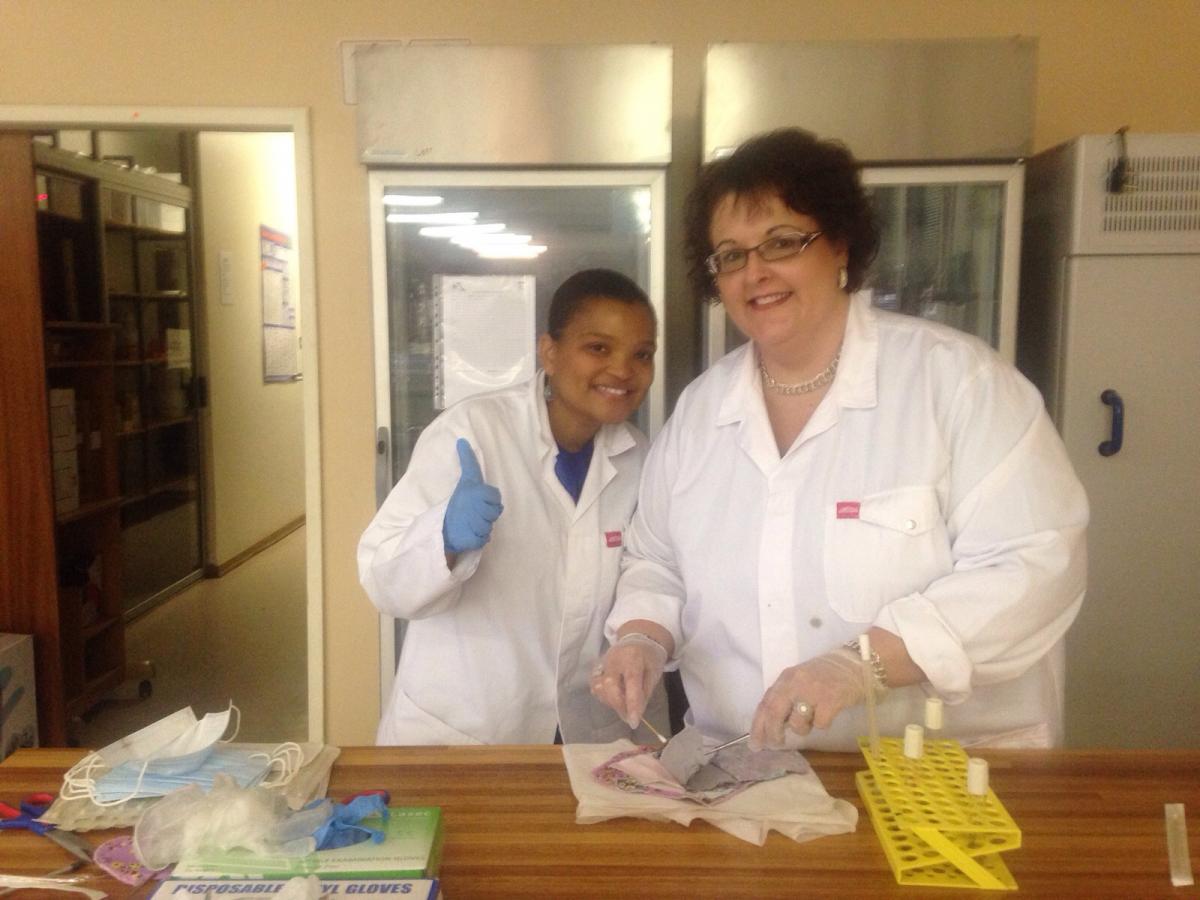
The eco-friendly towels are called Gracious Nubian.
“I have always had an interest in helping my community, especially young girls. I would approach sponsors to donate sanitary pads to me and then I would distribute to girls who are needy in my community,” said Naanyane-Bouwer.
“I noticed that a large portion of girls in rural communities simply cannot afford sanitary towels.”
Currently, Naanyane-Bouwer employs three people who help manufacture the product. She has received funding from the National Youth Development Agency and the TIA has been behind the product since its initial stages in 2014.
Naanyane-Bouwer, who originates from Kroonstad in the Free State, says when a girl is unable to go to school due to their menstrual cycle, the days she is absent from school add up to about one term.
“This means that this girl has missed one term of school work. I found this to be upsetting; no girl should go through this.”
She also found that the normal disposable sanitary pads can take between 500 to 800 years to decompose and form the bulk of waste material found in water treatment plants.
“I wanted to create a product that was environmentally friendly. It took me about four years to develop this product,” she explained, adding proudly that the Gracious Nubian sanitary towel will enable users to help save the environment.
Washing the Gracious Nubian requires only five litres of cold water and grey water – the water used to bathe for instance – is suitable. Any type of soap can be used and the product can be air or sun dried.
After developing her prototype, Naanyane-Bouwer found it to be visually unappealing and turned to the Central University of Technology and Technology Innovation Agency (TIA) for assistance.
“I also got the South African Bureau of Standards (SABS) on board to approve my product. Gracious Nubian is currently going through the patent process, otherwise the SABS was happy with what I created.”
Naanyane-Bouwer was a runner-up in the Global Cleantech Innovation Programme (GCIP-SA) and ploughed her R60 000 prize money back into her business.
“Participating in GCIP-SA is hard work. It stretches entrepreneurs in all areas required for a successful business. I sincerely appreciate the derisking of my business model. This is one of the very best platforms for entrepreneurial accelerator programmes globally,” said Naanyane-Bouwer.
Her future plans include distributing her product throughout the country and also expanding to other countries on the continent, as well as tapping into India, Asia and Brazil.
New graduates mean safer roads
New graduates mean safer roads LondekileOpened last year, the Mpumalanga traffic college has held its inaugural Pass Out Parade.
Traffic officers should uphold the law at all times, contribute to the reduction of needless road accidents and not take bribes. A good traffic officer works hard for the community.
This is according to the Mpumalanga MEC for Community Safety, Security and Liaison, Pat Ngomane. The MEC was addressing 161 traffic officers who graduated from the newly-built traffic college in Bushbuckridge, Mpumalanga.
“You should demonstrate what you have learned at the college on the road and ensure that you contribute towards the reduction of needless road accidents,” said Ngomane.
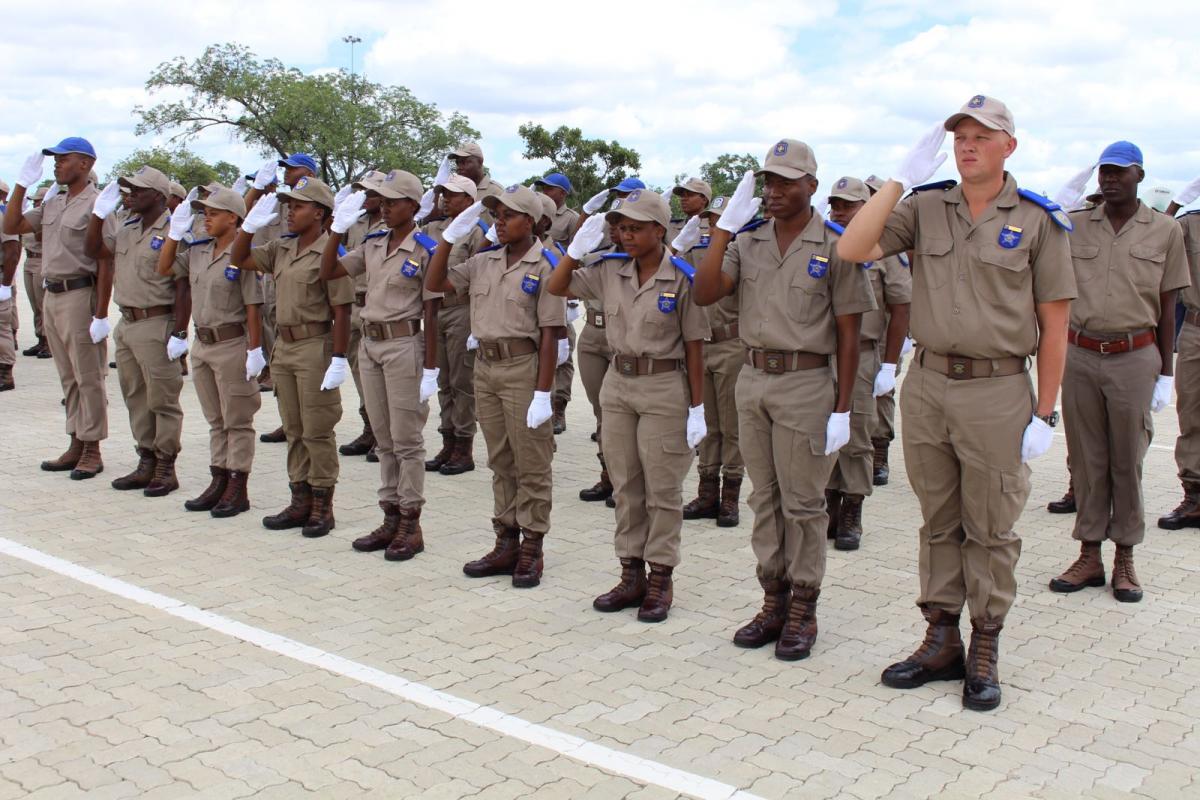
He said the traffic officers must work hard to help boost the reputation of the college so that more youngsters will enrol to become traffic officers.
In addition, MEC Ngomane invited SADC countries to make use of the state-of-the-art college.
“This will lead to increased co-operation and synergy in road safety initiatives and law enforcement for the province and neighbouring countries,” he added.
The traffic officers who graduated from the Mpumalanga Traffic College received certificates after 12 months of training. The programme cosisted of various elements of traffic law enforcement, such as firearm handling, Aarto implementation, the National Road Traffic Act, loads, vehicle control and the transportation of dangerous goods.
The Mpumalanga Traffic College was launched early in 2017 and can accommodate 161 learners. There are 13 such traffic colleges in the country.
The ceremony was also attended by Transport Minister Joe Maswanganyi who congratulated the officers on making the best of this opportunity.
“It is my sincerest hope that you will use the skills you have acquired to uplift your families, contribute to the development of your communities and assist us to reduce the scourge of road crashes and fatalities,” he said.
One graduate, Martin Barnard, said he was very glad for the opportunity and is looking forward to his career as a traffic officer.
Newborns most at risk from Listeriosis
Newborns most at risk from Listeriosis UrsulaSouth Africans should practice basic food hygiene principles in light of the Listeriosis outbreak.
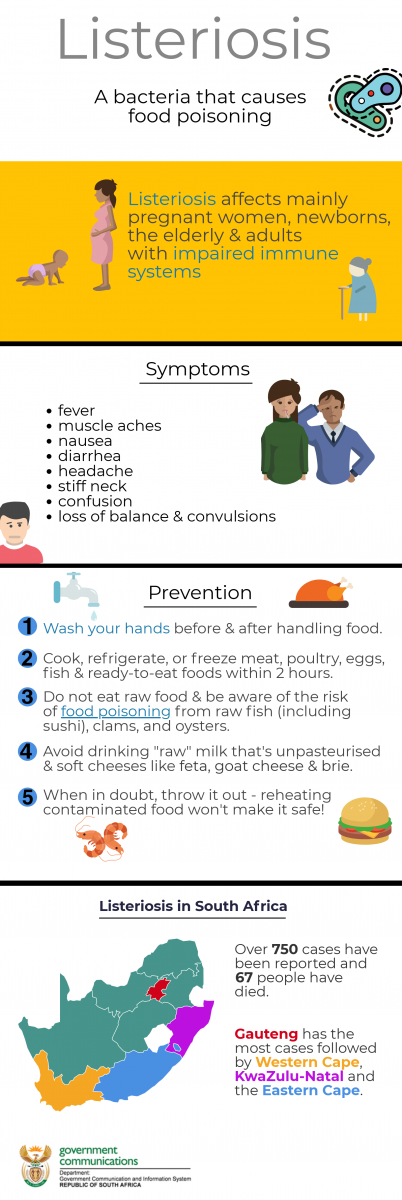 The Department of Health has put the Listeriosis outbreak on high surveillance, with 119 new cases being reported since December 5. In total, 727 laboratory-confirmed cases were reported in 2017.
The Department of Health has put the Listeriosis outbreak on high surveillance, with 119 new cases being reported since December 5. In total, 727 laboratory-confirmed cases were reported in 2017.
The Centre for Disease Control and Prevention describes Listeriosis as a serious but treatable and preventable disease caused by the bacterium Listeria monocytogenes. It is found in soil, water and vegetation. Animal products – such as meat and dairy, seafood and fresh produce such as fruit and vegetables can be contaminated from these sources.
Although anyone can get Listeriosis, those at high risk of developing the disease include newborn babies, the elderly, pregnant women, and people with weak immunity such as HIV, diabetes, cancer, chronic liver or kidney disease patients.
The groups that are most affected are neonates – those in the first 28 days of life, and people aged between 15 and 49. These two groups comprise 70 percent of all cases.
The department has urged pregnant women to register on MomConnect to receive updates on Listeriosis as babies under 28 days old are the worst affected.
“When we view the statistics of affected people, we note that of all these vulnerable groups, neonates are the worst affected. If we analyse it by age group from birth to 93 years, neonates alone account for close to 40 percent of these cases,” said Health Minister Dr Aaron Motsoaledi.
The minister also appealed to health workers to be extra vigilant when dealing with pregnant women.
“A special request to health workers and the public at large is to pay special attention to all pregnant women. Have a high index of suspicion whenever dealing with a pregnant woman or a neonate,” he said.
For more information, members of the public can
call the National Institute For Communicable Diseases (NICD) Emergency Operations Centre during working hours on 011 386 2000.
Health workers can call the NICD Hotline for Clinical Emergencies after hours on
082 883 9920.
Reach for the stars with science
Reach for the stars with science lebangThe Department of Science and Technology says internships are part of South Africa’s efforts to expand the science and engineering workforce.
The department regards youth employment as critical in order to build a stable society and promote and sustain national economic growth.
Science and Technology Minister Naledi Pandor said start-ups are the heartbeat of a developing economy and her department offers programmes that create awareness of the value of science and technology, and the critical role these play in ensuring national prosperity and sustainable development.
She said internships provide innovators and entrepreneurs the incentive to build start-ups of their own.
In an effort to create opportunities for youth in the science field, the department has agencies that run initiatives and programmes to support young scientists.
One of these is the National Research Foundation (NRF), which had a budget of about R2.4 billion set aside for student bursaries for the 2017/18 financial year.
Minister Pandor said the bursaries comprised about 13 800 honours, master’s and doctoral students. The NRF also provides research grants for approximately 4 500 researchers.
The minister also said the department has created 34 new science centres in the past decade.
“This growth in science centres is partly driven by community engagement initiatives by the higher education sector and corporate social responsibility programmes,” she said.
The NRF also allocated R500 million in the 2017/18 financial year for the South African Research Chair Initiative to attract and retain established researchers who are recognised global experts.
Inspiring school learners
For school learners, another agency that reports to the department-- the South African National Space Agency (SANSA) -- has a programme that targets about 9 000 learners per year to encourage them to consider careers in space science.
SANSA CEO Dr Valanathan Munsami says the Space Weather Programme reached about 18 000 learners in schools across the country in 2017.
Dr Munsami said through the Space Weather ProgrammeSANSA visits school learners to teach them about exciting jobs they can consider when they finish matric.
“We do experiments with them in their science laboratories to give them a bit of first-hand experience on some of the things we do at SANSA. We also have mobile laboratories for schools that do not have science laboratories,” he said.
Dr Munsami said SANSA has a bursary programme which funds about 80 post graduate students per year to create the capacity that is needed for the country’s space programme and the broader economy.
SA, Zimbabwe expand economic relations
SA, Zimbabwe expand economic relations vuyelwanInternational relations / Africa news
Neighbouring countries reach consensus on issues of mutual importance
President Jacob Zuma and President Emmerson Mnangagwa of Zimbabwe have undertaken to strengthen economic trade and co-operation between South Africa and Zimbabwe.
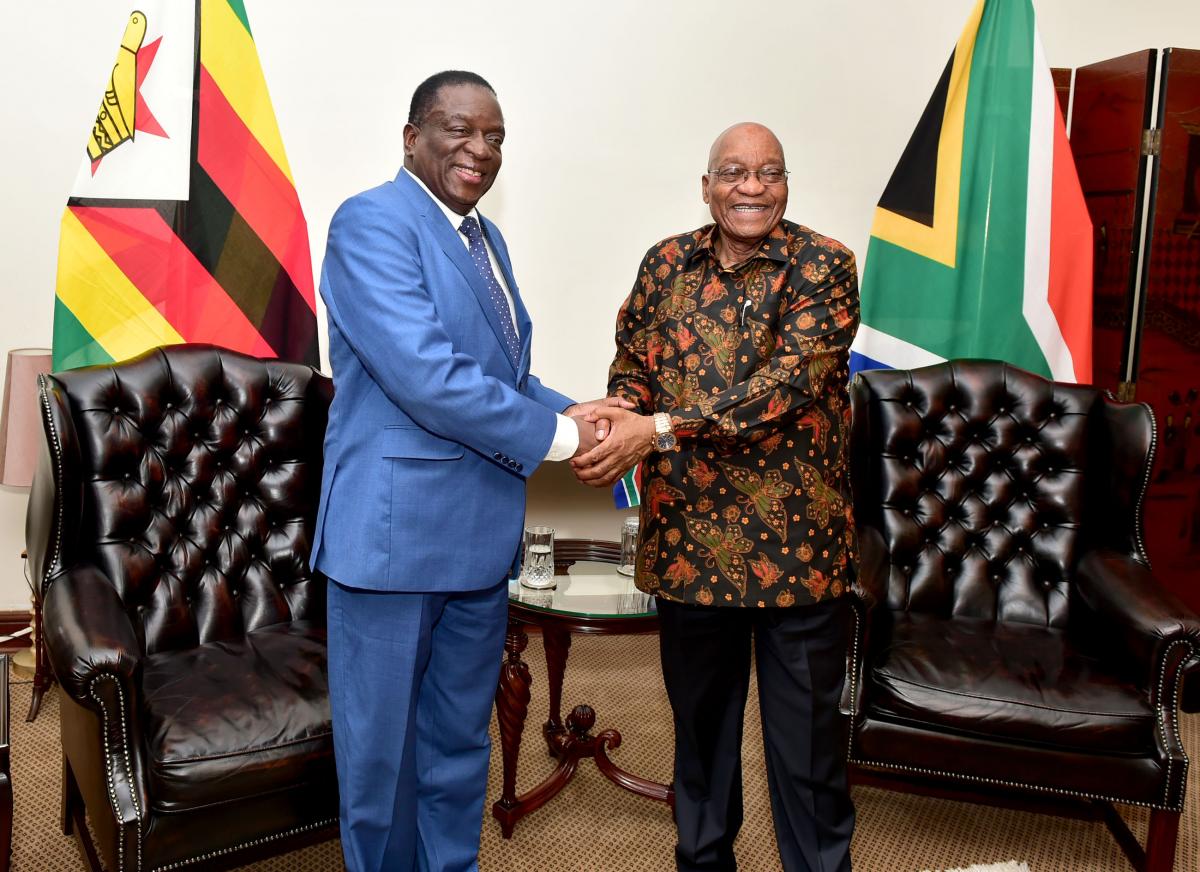
“The two Heads of State agreed on the need to strengthen economic co-operation and expand economic and trade relations between the two countries," said the Presidency. They plan to make this a key feature of the South Africa-Zimbabwe Bi-National Commission agenda in support of President Mnangagwa’s mission to revive the Zimbabwean economy which has been hit by sanctions and other challenges over many years.” President Mnangagwa was on his first working visit to South Africa after his inauguration on 24 November 2017. This was also his first official visit outside of Zimbabwe since he took office.
The Zimbabwean President thanked President Zuma for the warmth and hospitality provided to Zimbabweans living in South Africa.
“He appealed to the Zimbabweans to return home to put the skills that they have acquired in South Africa to great use in the rebuilding the Zimbabwean economy and development of their motherland,” said the Presidency.
The two leaders share a warm history of having worked together while in exile in Mozambique, in their then responsibilities for intelligence and security services for the ANC and ZANU-PF respectively.
Among the issues discussed during the meeting was the need to strengthen historical relations between the two countries and the need to deepen these relations.
They also agreed to keep in close contact on an ongoing basis to share ideas as neighbours on political issues as well as regional, continental and international issues affecting their countries and the continent.
SAATM to create 300 000 jobs
SAATM to create 300 000 jobs vuyelwanInternational relations / Africa news
More than two million jobs will be created on the continent through the Single African Air Transport Market.
The launch of a Single African Air Transport Market (SAATM) is expected to create 300 000 direct and two million indirect jobs on the continent.
“With preparations continuing on schedule, the launch of the SAATM will spur more opportunities to promote trade cross-border investments in the production and service industries, including tourism, resulting in the creation of an additional 300 000 direct and two million indirect jobs contributing immensely to the integration and socio-economic growth of the continent,” said African Union (AU) Commissioner for Infrastructure and Energy, Amani Abou-Zeid.
The SAATM was launched at the AU Summit in Addis Ababa, Ethiopia, as part of the first AU Agenda 2063 project.
Commissioner Abou-Zeid said the aviation industry currently supports eight million jobs in Africa and SAATM was created with the aim of enhancing connectivity on the continent.
“SAATM was created with the aim of enhancing connectivity and ensuring that the industry plays a more prominent role in the global economy and significantly contributes to the AU’s Agenda 2063,” said Commissioner Abou-Zeid.
So far, 23 African countries out of 55 have subscribed to the SAATM and 44 African countries signed the Yamoussoukro Decision.
“The African Union Commission, under the leadership and personal commitment of Moussa Faki Mahamat, has been playing a key coordinating role in the establishment of the SAATM and advocacy to AU Member States, who have not yet committed to the solemn commitment, to do so,” said the Commissioner.
African countries urged to open their skies
The African Union Commission (AUC), the African Civil Aviation Commission (AFCAC), the International Civil Aviation Organization (ICAO), the International Air Transport Association (IATA) and the African Airlines Association (AFRAA) are also advising African countries to open their skies for enhancement of connectivity and efficiency of air services in the continent.
“As the first of the 12 African Union’s Agenda 2063 flagship projects such to be launched, the implementation of SAATM will pave the way for other flagship projects as the African Passport and enabling the Free Movement of People, the Continental Free Trade Area (CFTA),” Commissioner Abou-Zeid stressed.
The declaration on the establishment of a SAATM, was adopted by the African Union Assembly in January 2015.
Immediately thereafter, 11 AU member states declared their commitment to establish a SAATM through full implementation of the Yamoussoukro Decision of 1999.
The Yamoussoukro Decision of 1999 provides for full liberalisation of market access between African States, free exercise of traffic rights, elimination of restrictions on ownership and full liberalisation of frequencies, fares and capacities.
To date, 23 Member States that have adhered to the commitment are: Benin, Botswana, Burkina Faso, Cabo Verde, Congo, Cote d'Ivoire, Egypt, Ethiopia, Gabon, Ghana, Guinea, Kenya, Liberia, Mali, Mozambique, Niger, Nigeria, Rwanda, Sierra Leone, South Africa, Swaziland, Togo and Zimbabwe.

SA’s supercomputing stars set for Germany
SA’s supercomputing stars set for Germany lebangStudents show SA is up there with the rest of the world when it comes to cutting edge computer technology.
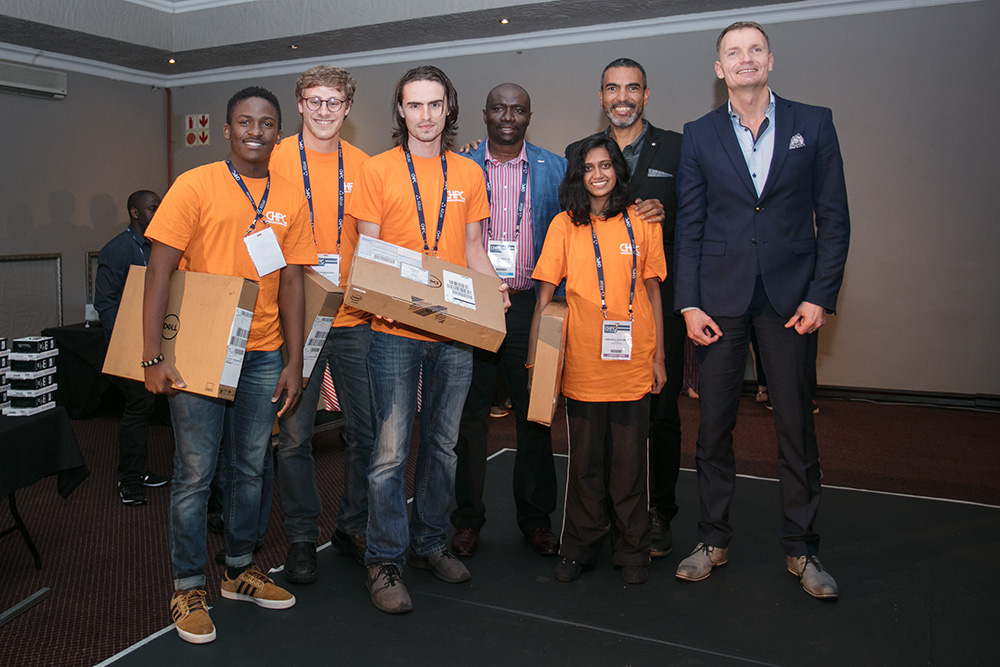 Kimessha Paupamah (20) is unable to contain her excitement knowing that in June she will be part of a group of Information Technology students representing South Africa at the International Supercomputing Conference in Germany.
Kimessha Paupamah (20) is unable to contain her excitement knowing that in June she will be part of a group of Information Technology students representing South Africa at the International Supercomputing Conference in Germany.
“My team and I are working hard to prepare for the conference. I want to represent my country well and win the competition,” said Paupamah, who is a third year computer science student at the University of Witwatersrand.
Paupamah is one of students who trained at the Centre for High Performance Computing (CHPC) within the Council for Scientific and Industrial Research (CSIR).
The CHPC trains computer science and engineering students from various South African universities in its annual winter school held every July. Promising students are then selected for the National Student Cluster Competition that takes place during the CHPC’s National Conference in December.
Winners of the national competition are entered into the annual International Student Cluster Competition that takes place in Germany. In a real-time challenge, the students will have to build small, high-performance computing clusters on the exhibition floor and race to demonstrate best performance across a series of benchmarks and applications.
South Africa is always represented by a new team of six undergraduates.
Paupamah said as part of the national leg of the competition, her team had to build a supercomputer that would solve life problems.
A supercomputer is tens of thousand times faster than a general purpose computer. “This type of computer can be used to store large amounts of data or process big volumes of raw data quickly,” said Paupamah. This saves time and money in the research environment, she explained.
The CHPC is one of three primary pillars of the national cyber infrastructure intervention initiated by the Department of Science and Technology (DST) and managed by the CSIR.
Speaking at the national competition, DST’s Director-General, Dr Phil Mjwara, said that the department was committed to investing in science, engineering and innovation.
“This kind of government assistance fosters the creation and dissemination of knowledge of innovation and has a strong influence on the long-term competitiveness of the country,” said Dr Mjwara.
“There’s no doubt that a country’s information, communications and technology (ICT) sector is vital to its long-term prosperity. The globally competitive ICT structure creates a sustainable ecosystem and enables researchers and scientists to globally compete.”
Last year, South Africa came second in the international event and this year’s team is hoping to bring home another medal.
For more information, students can visit : https://www.chpc.ac.za
Success is on hospitality graduates’ itinerary
Success is on hospitality graduates’ itinerary LondekileYoung people with a passion for tourism have a ticket to success thanks to a government training programme.
Mpumalanga recently welcomed over 200 graduates who will be working in the hospitality management sector. These ambassadors will serve as a shining example of what a difference a qualification can make in the life of a previously disadvantaged youth.
The graduates participated in the Hospitality Youth Training Programme which is an initiative of the National Department of Tourism and the Expanded Public Works Programme. Learners receive CATHSSETA accredited National Certificates in Food and Beverages Services (NQF level 4), and National Certificates in Accommodation Services (NQF Level 2).
“This training programme is one of the department’s initiatives that seek to ensure that young people are included in the tourism economy, uplift their livelihoods and radically transform the economy,” said Tourism Deputy Minister Elizabeth Thabethe.
She explained that in the 2016/2017 financial year, the department approved a budget of R140 million for the training of 2 000 learners from all provinces, over a 12-month period. Some graduates are already working overseas, on luxury trains, hotels and on super yachts.
Graduate Noluleko Nkosi said the journey was not always easy but it was worth it in the end.
“The joy of having my mother present on this special day, gives me hope for tomorrow. We are thankful to the department and all stakeholders who made this learnership a possibility,” she said.
A parent of one of the graduates, Siphumulile Sigudu, said they are very grateful for the opportunity because many parents do not have the means to send their children to an institution to obtain a certificate or degree.
“This opportunity is a good stepping stone for those who want to further their studies in the field of hospitality.
“We have hope that our children can now conquer the world,” said Sigudu.
This month in history
This month in history vuyelwanSouth African President FW de Klerk announces Nelson Mandela will be freed on 11 February
Saturday, 10 February 1990
The announcement by President FW de Klerk in parliament on 10 February 1990, that Mandela would be realised unconditionally the next day, took many people by surprise. This was not the first attempt by the Apartheid government to negotiate the release of Mandela. As de Klerk's predecessor in parliament, Botha had also offered to release Mandela on condition that he renounce violence. This offer was rejected as the Apartheid government used violence. By 1989 the levels of violence within the country were so great that in certain regions it was comparable to a civil war. This state among others forced the Apartheid government to the bargaining table, as the only outcome of an outright war was total devastation of the country, which was already under pressure from years of isolation (economic and cultural sanctions).
The decision to release Mandela and later other political activists paved the way for the birth of a Democratic South Africa.
Source: www.sahistory.org
Tribute to a legend
Tribute to a legend vuyelwanThe passing of South African jazz veteran Hugh Masekela stunned music loves across the world.
President Jacob Zuma has expressed his heartfelt condolences following the passing of internationally acclaimed jazz artist, legendary trumpeter, cultural activist and liberation struggle veteran Hugh Masekela. 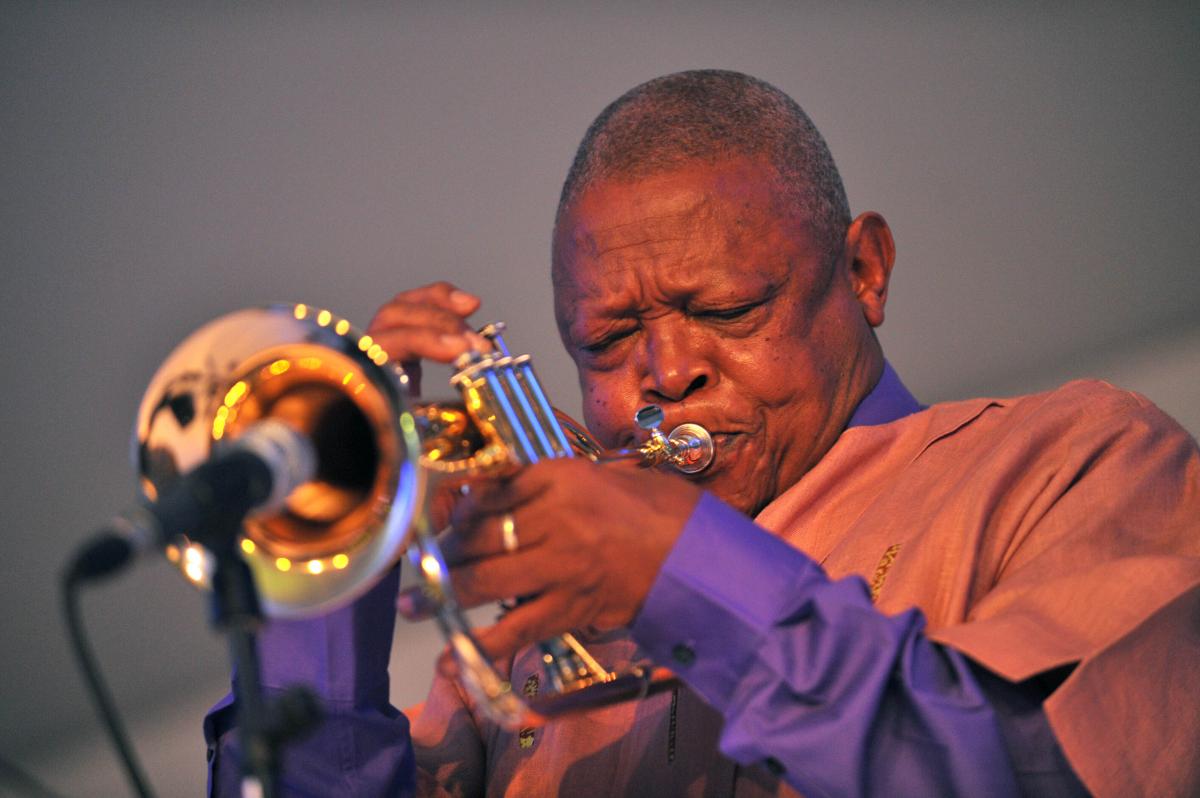
“The nation mourns one of its most recognisable signature talents in the person of Bra Hugh Masekela. It is an immeasurable loss to the music industry and to the country at large,” said President Zuma.
“His contribution to the struggle for liberation will never be forgotten. We wish to convey our heartfelt condolences to his family and peers in the arts and culture fraternity at large. May his soul rest in peace.”
Masekela passed away at the age of 78 following a battle with prostate cancer.
He was one of the pioneers of jazz music in South Africa whose talent was recognised and honoured internationally over many years.
President Zuma said he kept the torch of freedom alive globally fighting apartheid through his music and mobilising international support for the struggle for liberation and raising awareness of the evils of apartheid.
The world-renowned flugelhornist, trumpeter, bandleader, composer, singer and defiant political voice was born in Witbank in 1939.
At the age of 14, started playing the trumpet after seeing the film Young Man with a Horn. Deeply respected advocator of equal rights in South Africa, Father Trevor Huddleston gave Masekela his first trumpet and soon after the Huddleston Jazz Band was formed.
According to his website, Masekela began to hone his, now signature, Afro-Jazz sound in the late 1950s during a period of intense creative collaboration most notably performing in the 1959 musical King Kong written by Todd Matshikiza, and, soon thereafter, as a member of the now legendary South African group, the Jazz Epistles.
In 1960, at the age of 21 he left South Africa to begin what would be 30 years in exile.
On arrival in New York he enrolled at the Manhattan School of Music. This coincided with a golden era of jazz music and the young Masekela immersed himself in the New York jazz scene where nightly he watched greats like Miles Davis, John Coltrane, Thelonious Monk, Charlie Mingus and Max Roach.
Under the tutelage of Dizzy Gillespie and Louis Armstrong, Hugh was encouraged to develop his own unique style, feeding off African rather than American influences – his debut album, released in 1963, was entitled Trumpet Africaine.
In the late 1960s, Masekela moved to Los Angeles, where he was befriended by hippie icons like David Crosby, Peter Fonda and Dennis Hopper.
His subsequent solo career has spanned five decades, during which time he has released over 40 albums and has been featured on countless more, and has worked with such diverse artists as Harry Belafonte, Dizzy Gillespie, The Byrds, Fela Kuti, Marvin Gaye, Herb Alpert, Paul Simon, Stevie Wonder and the late Miriam Makeba.
In 1990, Hugh returned home, following the unbanning of the ANC and the release of the former President Nelson Mandela.
In June 2010, he opened the FIFA Soccer World Cup Kick-Off Concert to a global audience and performed at the event’s opening ceremony in Soweto’s Soccer City. In the same year, President Jacob Zuma honoured him with the highest order in South Africa, the Order of Ikhamanga.
Masekela is a Grammy award winner for “Best Contemporary Pop Performance-Instrumental”.
Hugh Masikela – a timeline
1939 – Hugh Masekela is born
1953 – Receives his first trumpet from Archbishop Trevor Huddleston
1959 – Performs in King Kong
1960 – Enrolls at Manhattan School of Music, New York
1967 – Perfoms at the Monterey Pop Festival
1990 – Returns to South Africa after 30 years in exile
2004 – Masekela publishes Still Gracing: The Musical Journey of Hugh Masekela
2010 – Received the Order of Ikhamanga
Two officers arrested for alleged corruption
Two officers arrested for alleged corruption LondekileThe Hawks Serious Corruption Crime Unit has arrested two police officers attached to Pienaarsriver SAPS in Limpopo for corruption and theft. 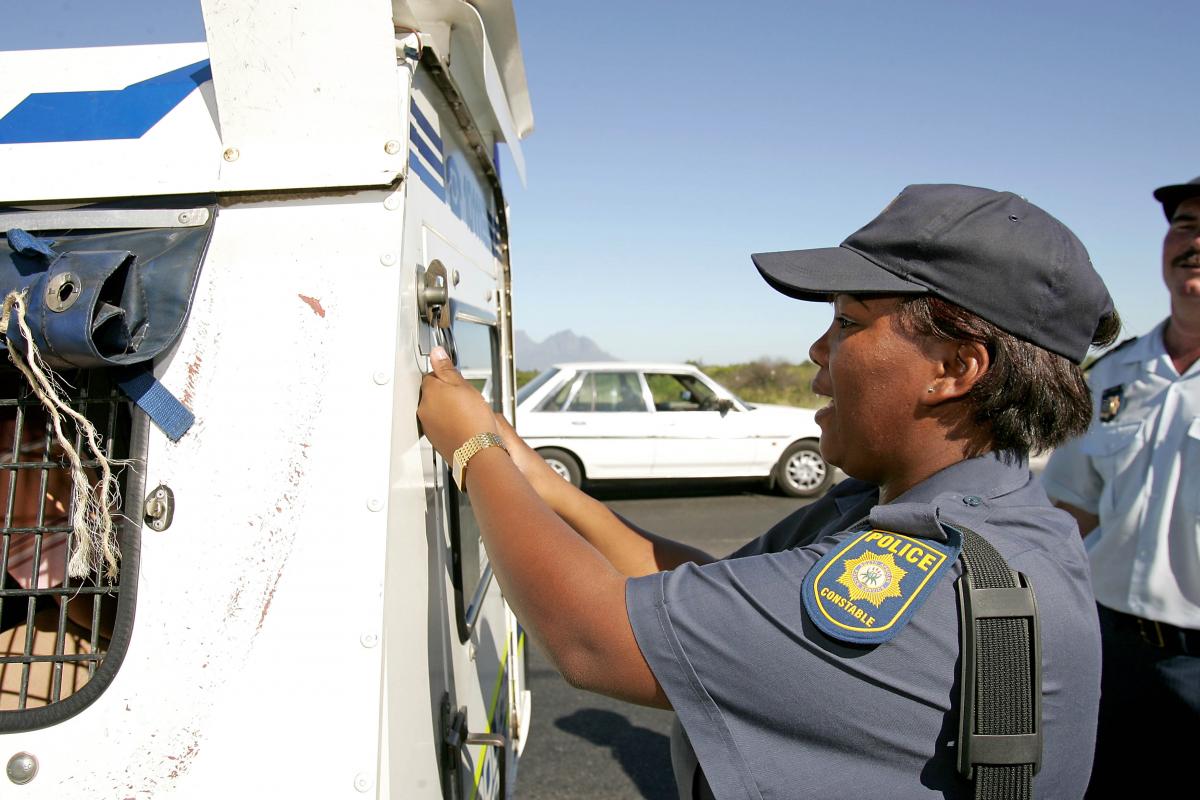
It is alleged that the officers stopped a complainant’s car on the N1 near Pienaarsriver and searched it and discovered a substantial undisclosed amount of money.
According to the Hawks, the officers then allegedly threatened to charge the com-plainant with money laundering and allegedly demanded a R20 000 bribe in order to let him go.
However, shortly afterwards the complainant realised that R210 000 was missing and he went to the police station to open a case.
The Hawks investigation led to the arrest of the officers.
Meanwhile, in the Northern Cape, the Hawks arrested IT assistant Dennis Peterson (41), who works for the Department of Transport, Safety and Liaison for alleged pro-curement corruption.
The Serious Corruption Crime Unit led the investigations, which started in June 2017. It was probing the alleged violation in the procurement process dating back to April 2016.
It is alleged that three quotations were sourced from different IT service providers. However, a specific company was contacted later to resubmit a revised quote and was ultimately awarded a tender valued at just over R38 000, following which a gratification was allegedly paid to Peterson.
The implicated company’s owner, Mosimanegape Victor Motaung (38), was also arrested separately and has appeared in the Kimberly Magistrate’s Court.
Both accused were released on R3 000 bail each and the case has been postponed to 16 February, pending further investigation.
Vigilantes are villains themselves
Vigilantes are villains themselves lebangWhile South Africans need to work with the police to fight crime, mob justice is not the answer.
South Africans need to work with the police to reduce and ultimately eradicate crime in the country. However, taking the law into your hands makes you as bad as the perpetrators.
That is according to Mpumalanga police spokesperson Colonel Mtsholi Bhembe who said there are a number of reasons why mob justice takes place.
“Sometimes community members may get caught up in the heat of the moment and throw all reason out of the window and deal with a criminal themselves, only to find that they will regret their decision later on,” said Col Bhembe.
The second reason he gave for people getting caught up in mob justice is that they often get impatient with prolonged justice and court processes.
“People would rather take the law into their own hands and opt for a quick solution. We as the police do not encourage this type of behaviour,” said Col Bhembe, adding that law and order should be left to the experts, who are trained and equipped to deal with crime and criminals.
“Rather call the police to a crime scene than take matters into your own hands, regardless of how strong you feel about the criminal act that was committed.”
Col Bhembe explained that the police are working hard to restore the trust and faith of communities in those who are meant to protect them.
“We have the best interest of the community at heart,” he affirms.
In recent news, two men died at the hands of angry community members in Masoyi near Hazyview, Mpumalanga. The deceased had allegedly robbed a business owner when the community traced them and took them back to the scene of the crime. The two were severely beaten and later died in hospital.
“The police are now looking for the people who did this and they will be brought before a court of law. It is illegal to take the law into your own hands and if found guilty, you will serve jail time,” warns Col Bhembe.
He encourages the community to report crimes to their nearest police station before an innocent person ends up dead.
“Make your voice heard by giving a statement at the police station,” he said.
Word on the street
Word on the street UrsulaAs President Jacob Zuma prepares to address the nation on government’s plans to take the country forward, Vuk’uzenzele took to the streets to hear what South Africans expect the president to say:
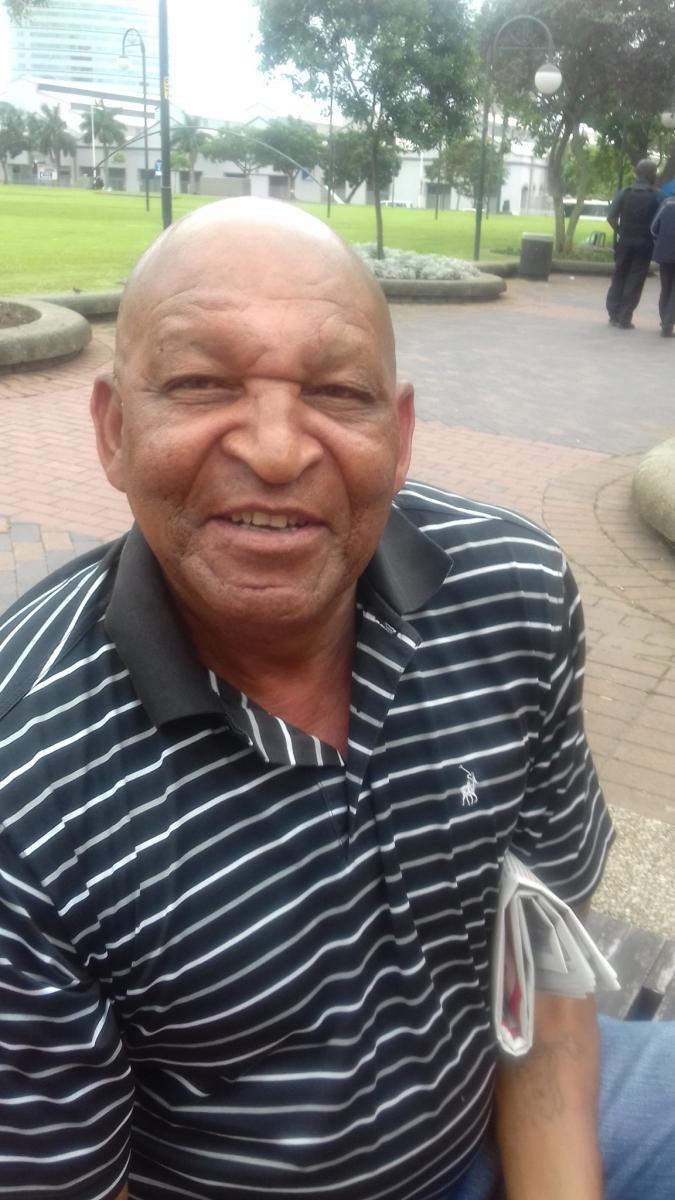 Boy Thwala (62)
Boy Thwala (62)
“My expectation from the president is that he will address how government is going to stop crime and corruption. Citizens feel unsafe to walk down a street because of crime. The government must provide employment in order to drop crime statistics because most people get involved in crime because they are unemployed. We also need to know how he is going to deal with corrupt leaders and officials.”
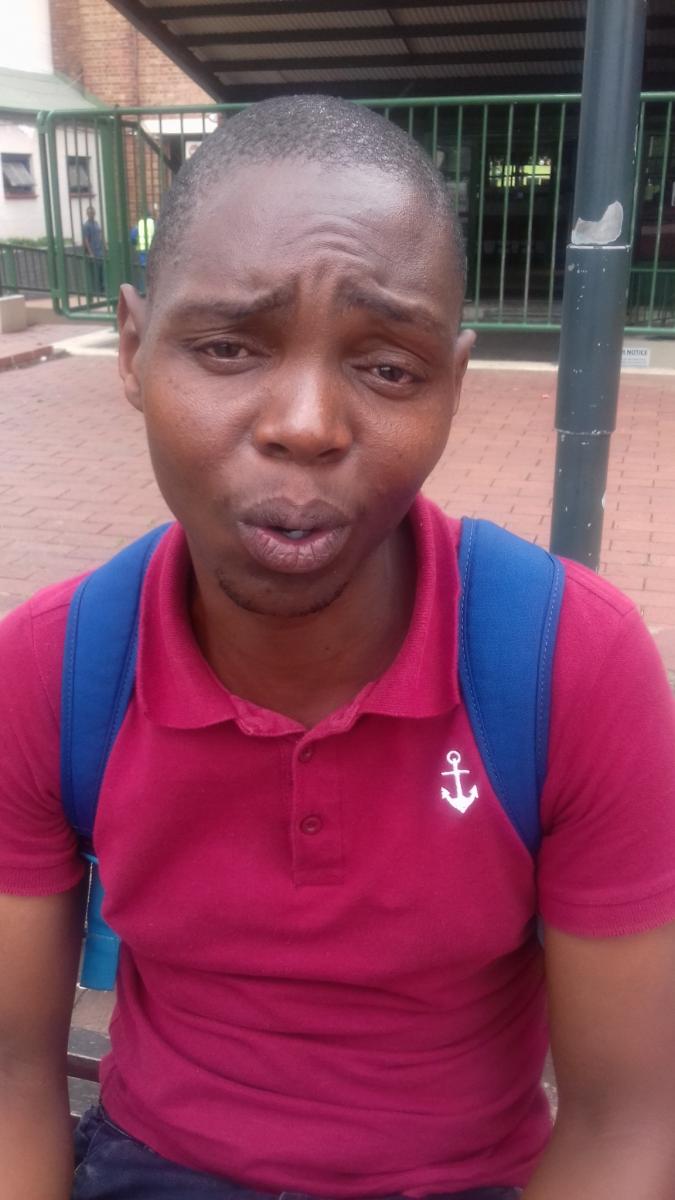 Ndumiso Thabethe (32)
Ndumiso Thabethe (32)
“I am expecting the president to talk more on education and employment opportunities. In rural areas like Maphumulo, where I am from, there is no proper school infrastructure. Learners study in tents or under the trees. The president needs to come up with a good strategy to address the shortage of classes in rural schools.”
Sicelo Sithole (27)
“I would like the president to address the issue of nepotism because it affects a number of qualified people. No matter how many degrees you have, you are not guaranteed employment. It is so easy to be employed when your relative works at the government. We need to have clear and legal processes when it comes to employment so that the right candidate will get what they deserve.”
Nozipho Sibiya (34)
“I would like the president to talk about abortion. The country should have strict rules for girls and boys on issues like the use of contraceptives. People should know that once you get pregnant, there's no going back.”
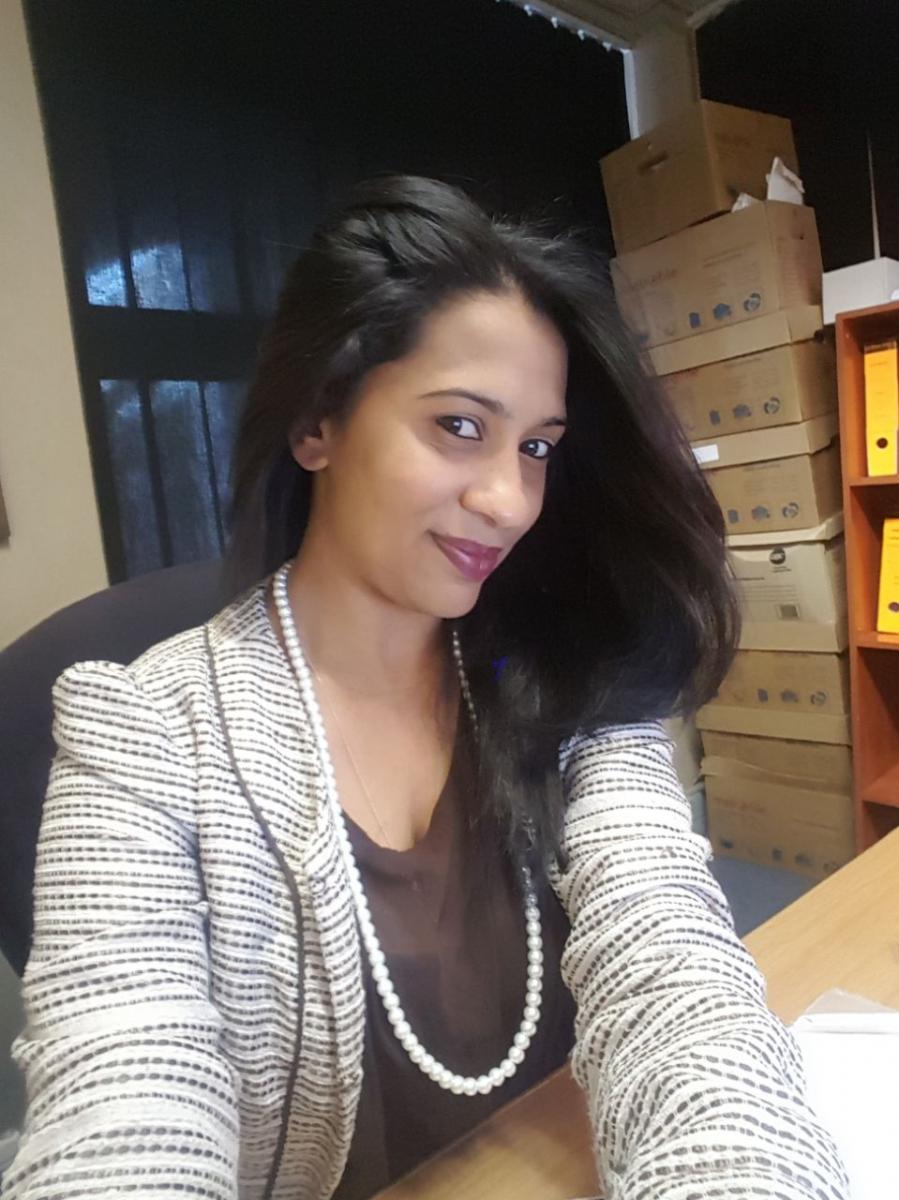 Nastajia Govender
Nastajia Govender
“I want to the president to address the issue of land reform. Fairness and distribution – is there capacity and the capability to train new farmers? Are there plans or techniques or the structures of successful farming yield? What are government’s plans for 2018 going forward with land reform?”
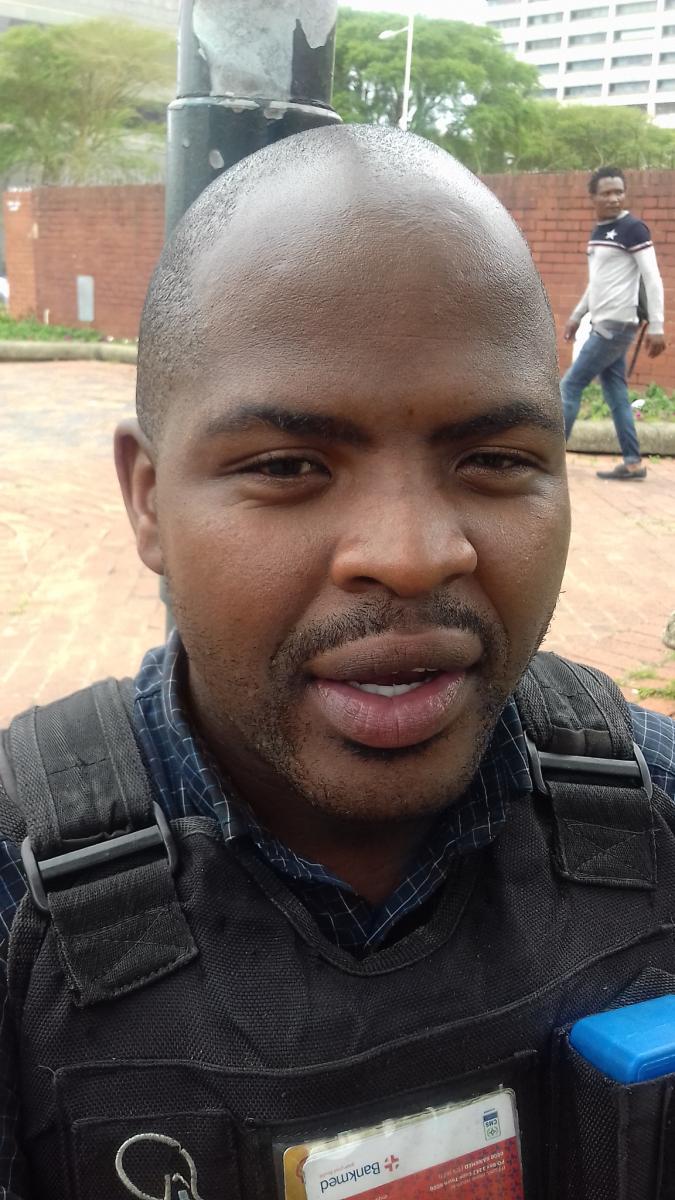 Njabulo Dladla (38)
Njabulo Dladla (38)
“I want to hear about how government will strengthen the security of our borders so that we can manage the number of people coming into our country. Secondly, I want to hear what President Zuma has to say about the working class who do not qualify for RDP houses and cannot afford to pay bonds.”
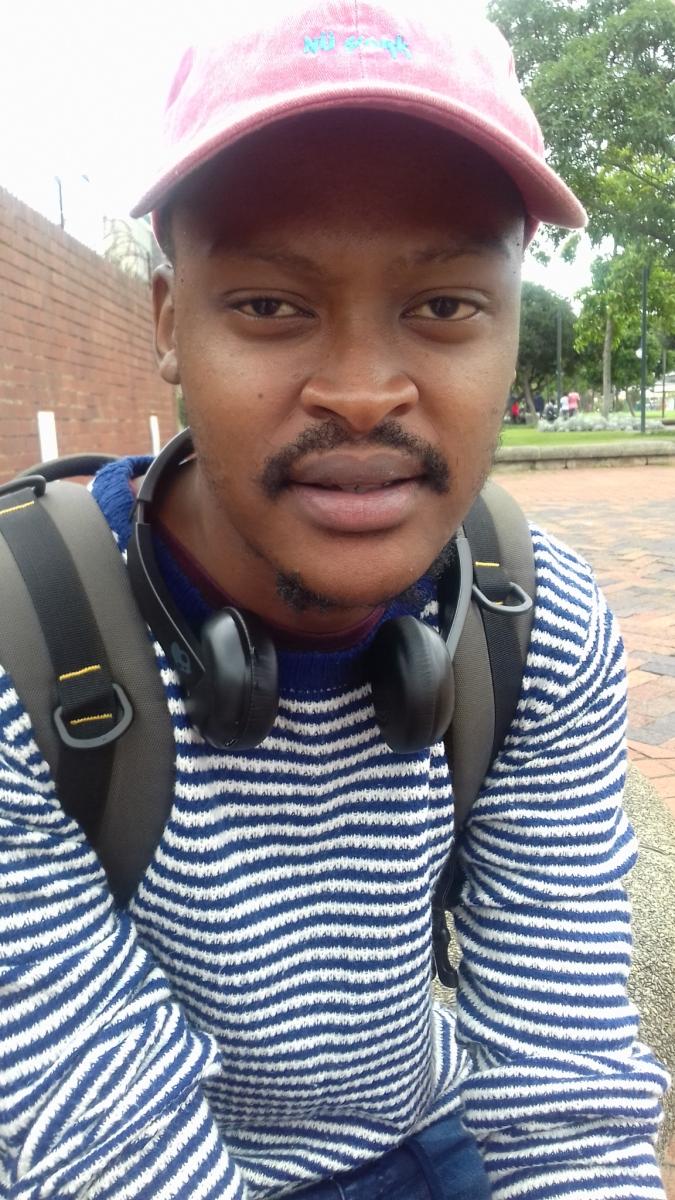 Popo Mbuli (26)
Popo Mbuli (26)
“The president needs to address issue of employment among youth. People are educated but they are sitting at home with their qualifications. If he can come up with more internship programmes for graduates to get experience and also consider giving youngsters increased access to funding to start their own businesses.”
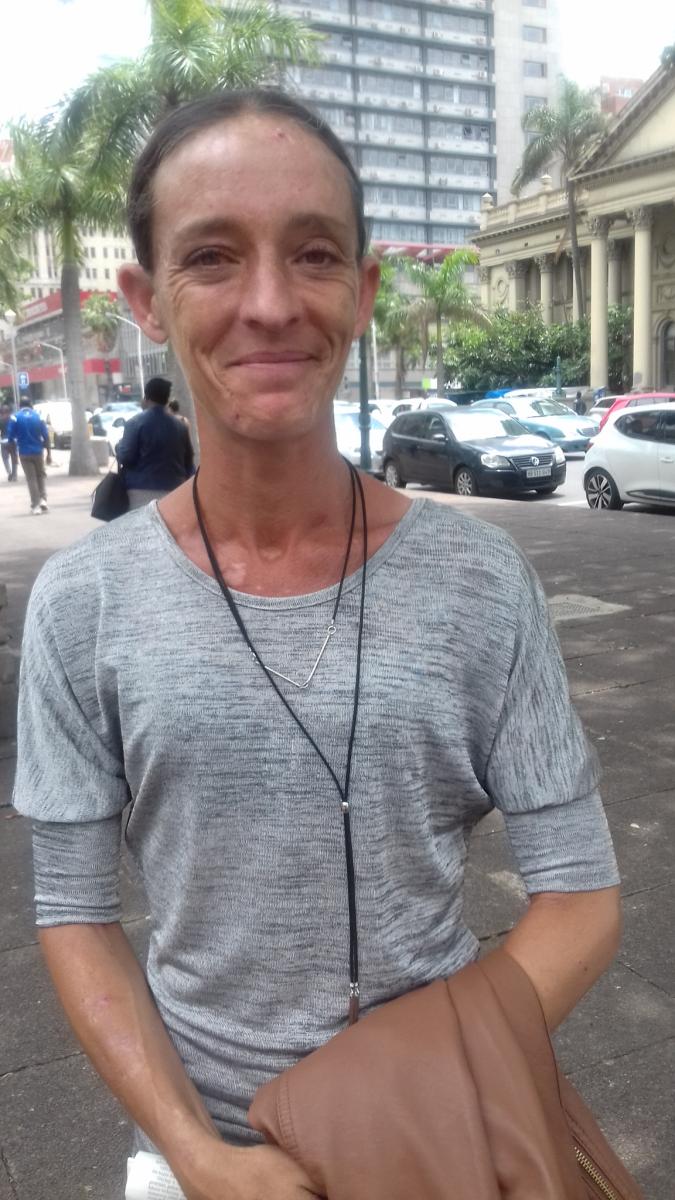 Candice Meiring (35)
Candice Meiring (35)
“I want the president to talk more about our economy. How is the government going to grow our economy? What plans are there to ensure that food and petrol prices are controlled and that we attract foreign investors who will bring stability to the country.”